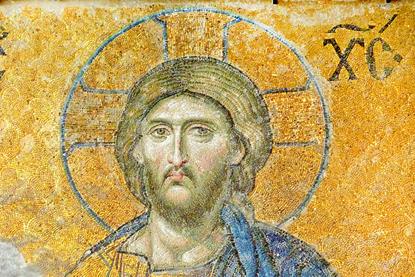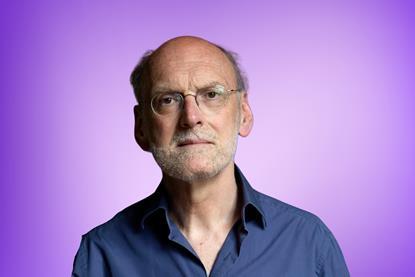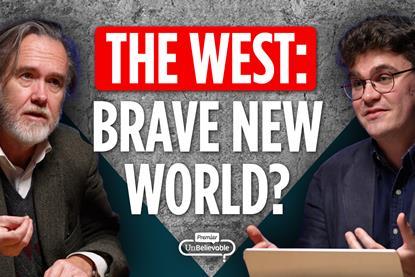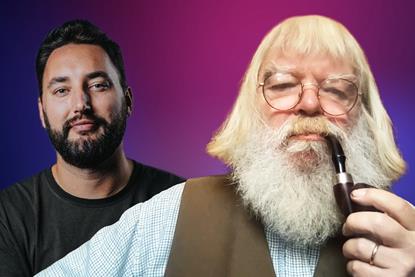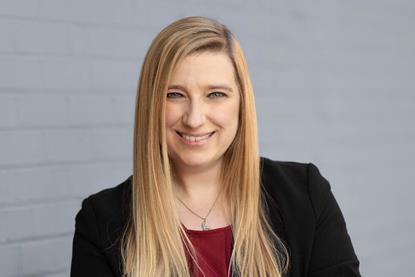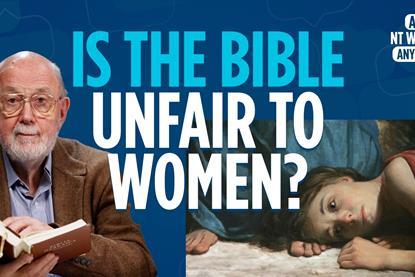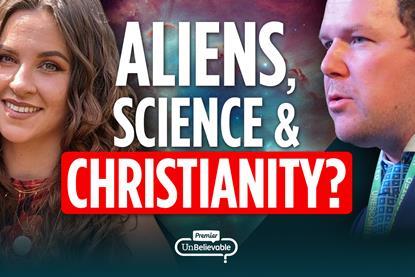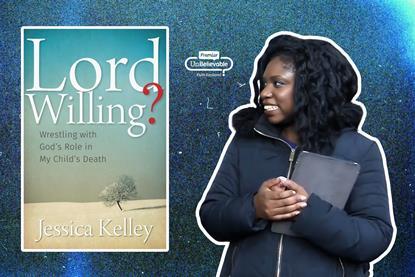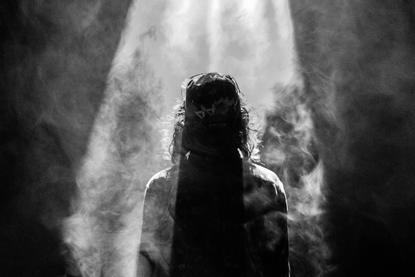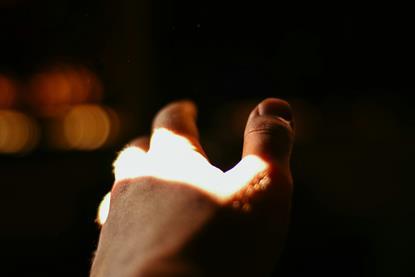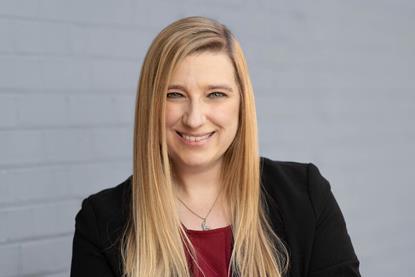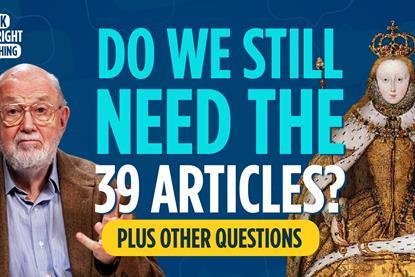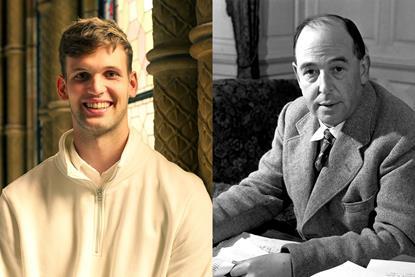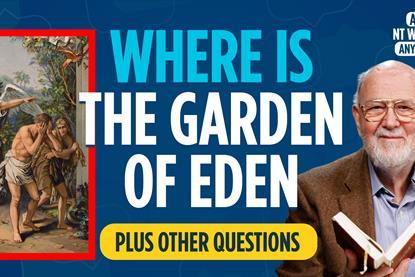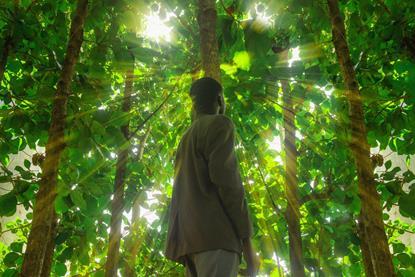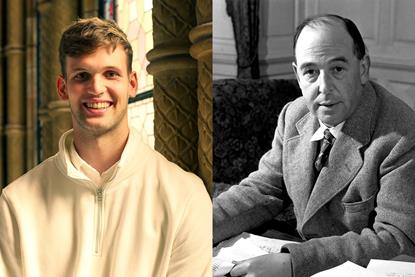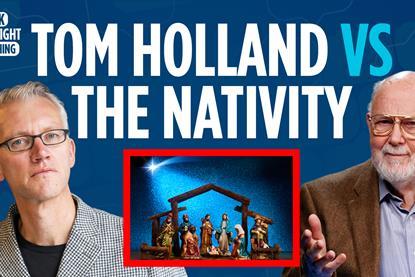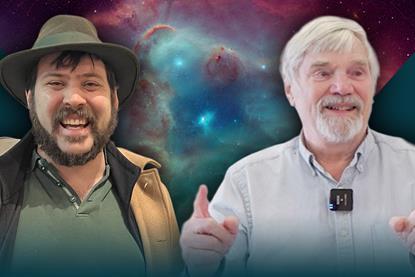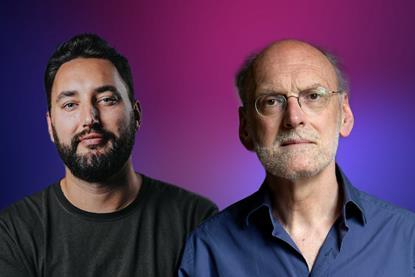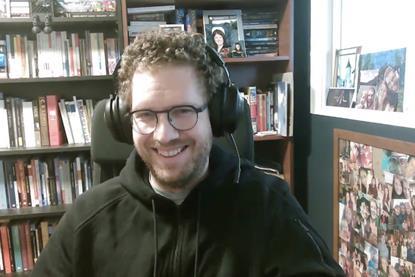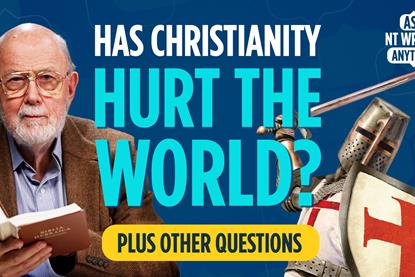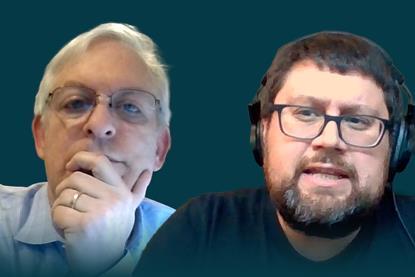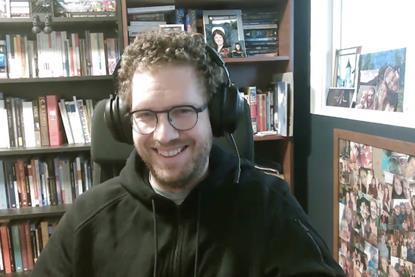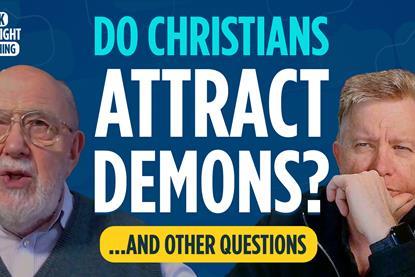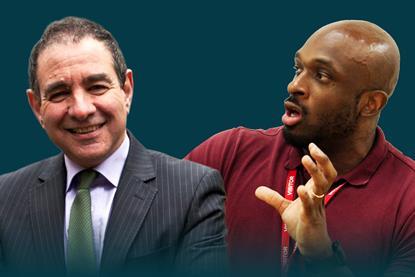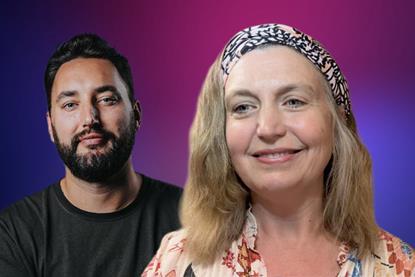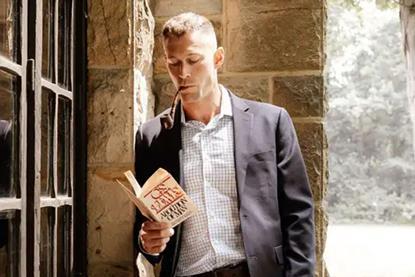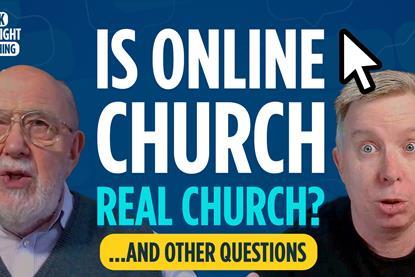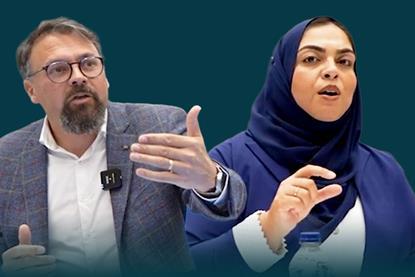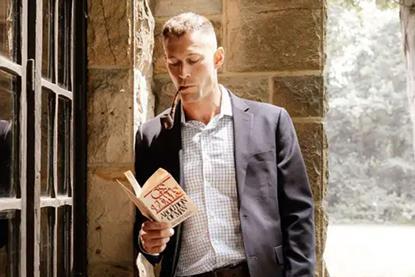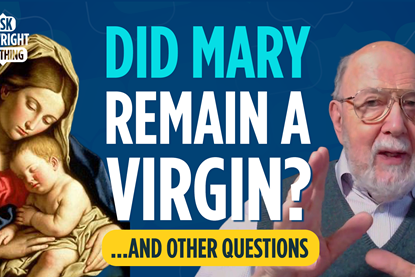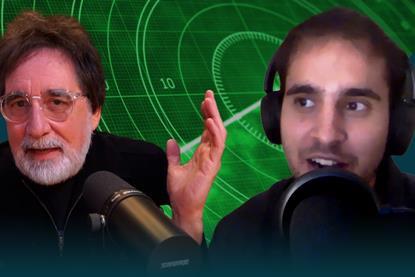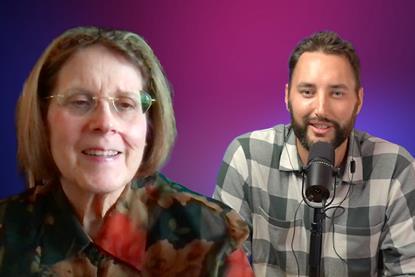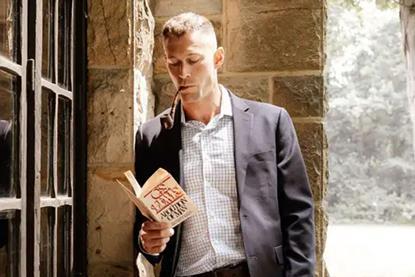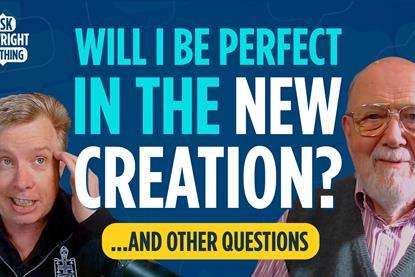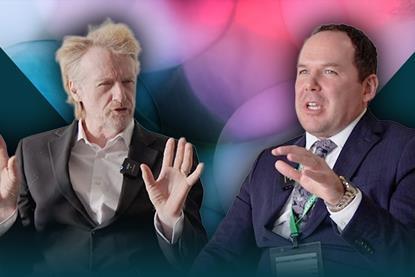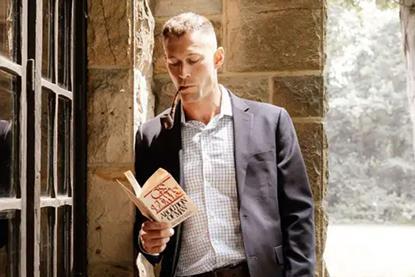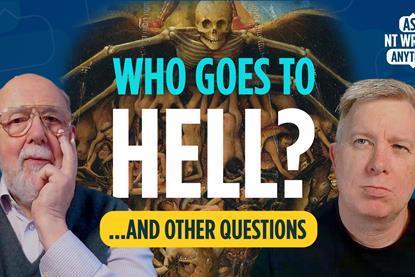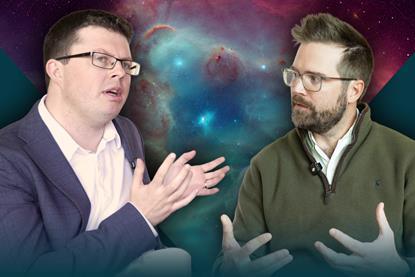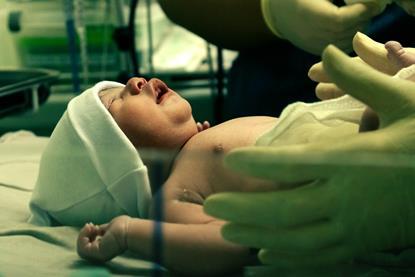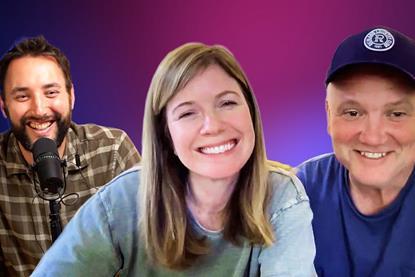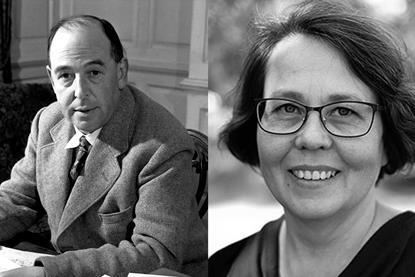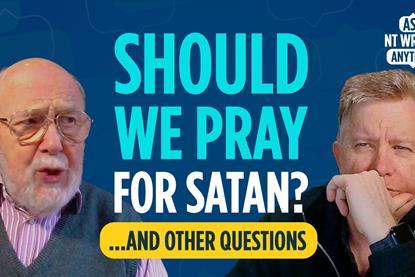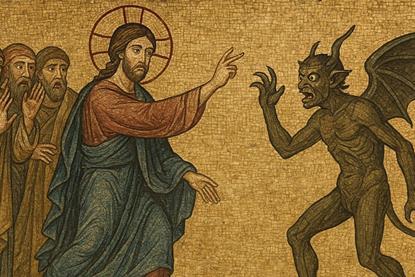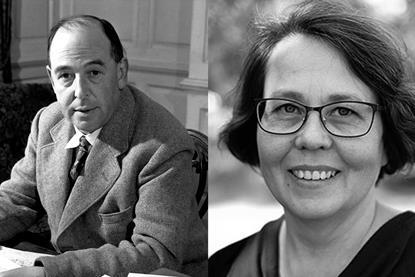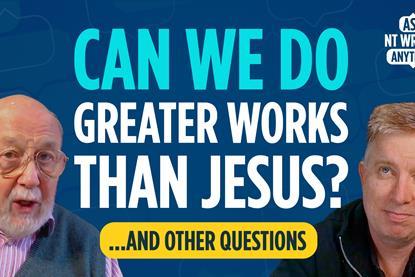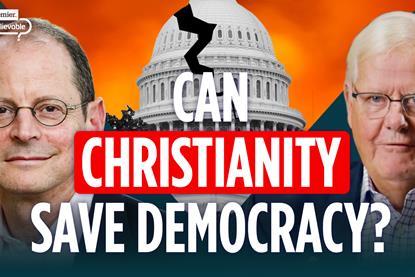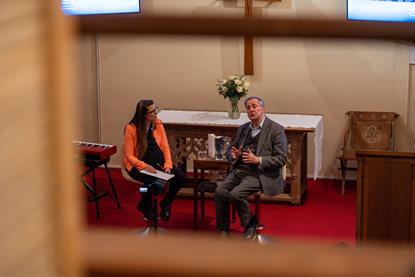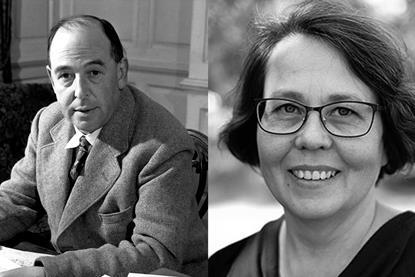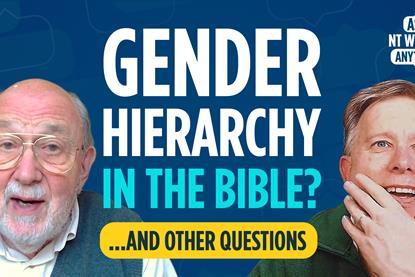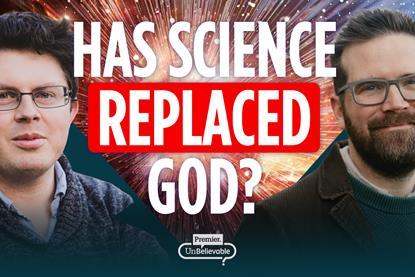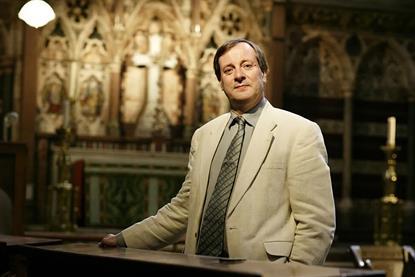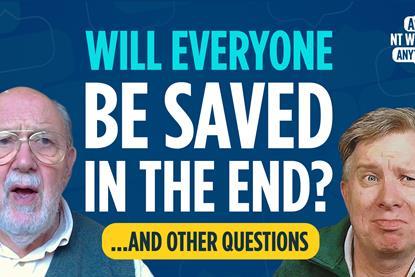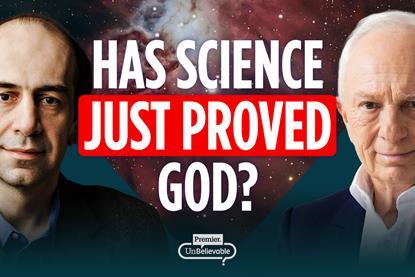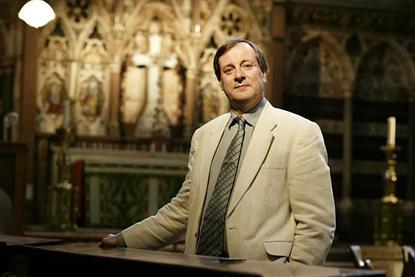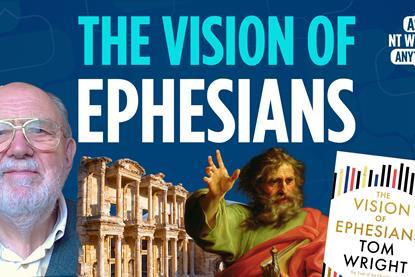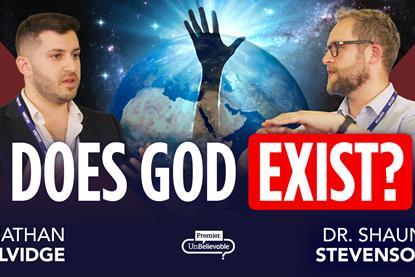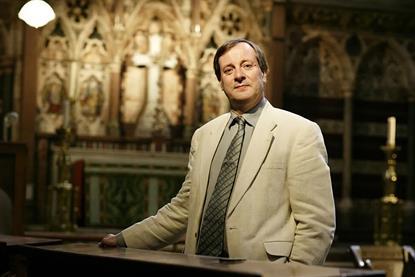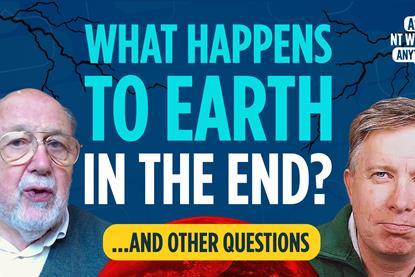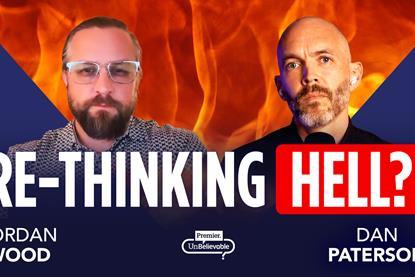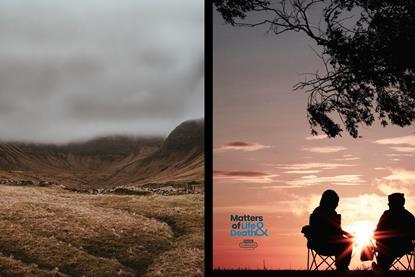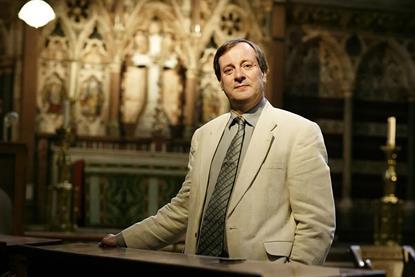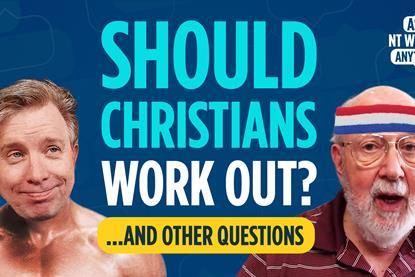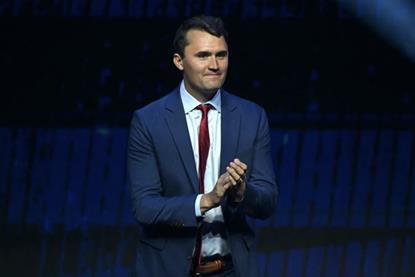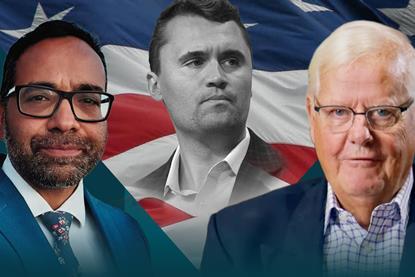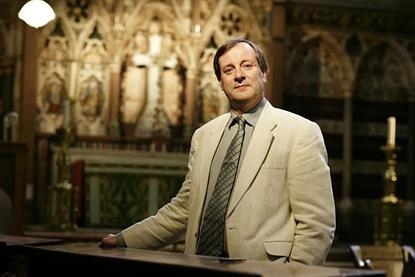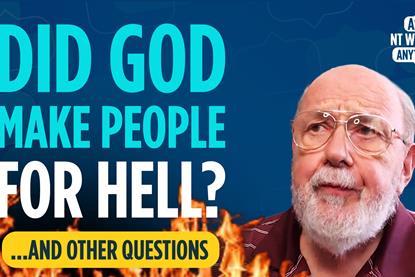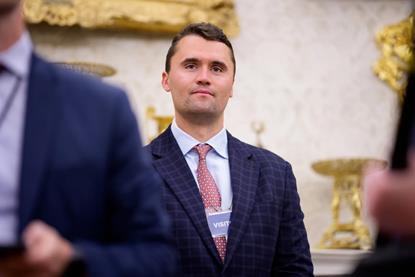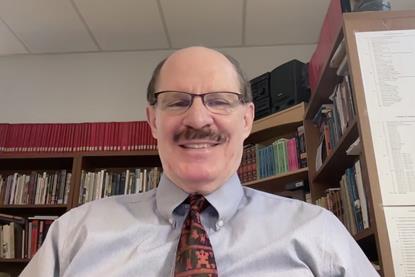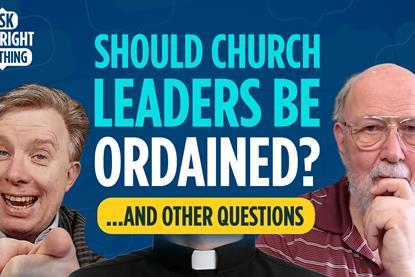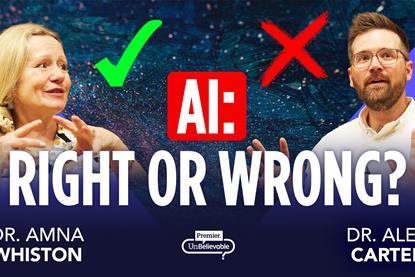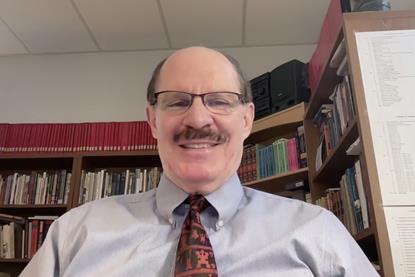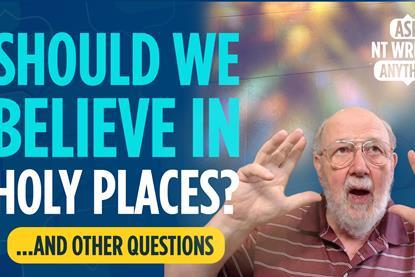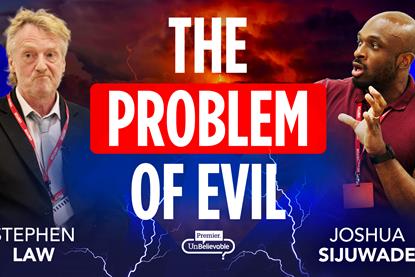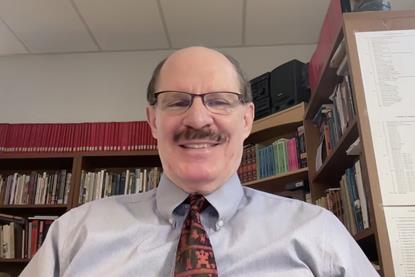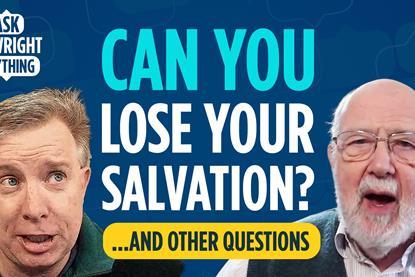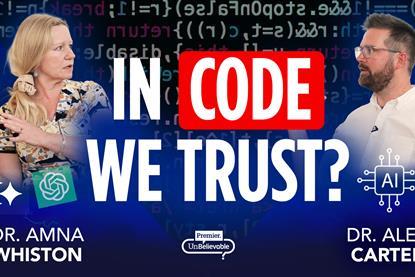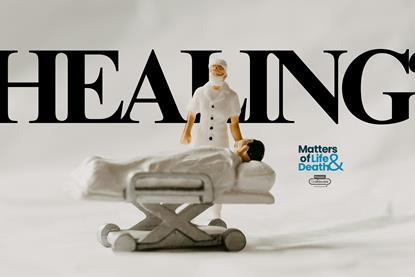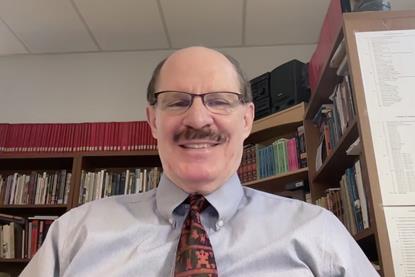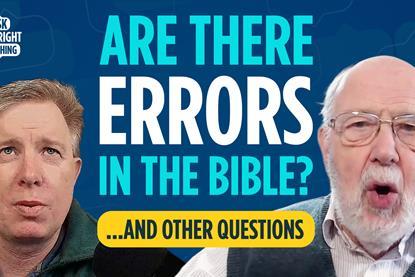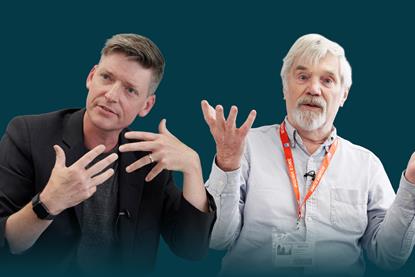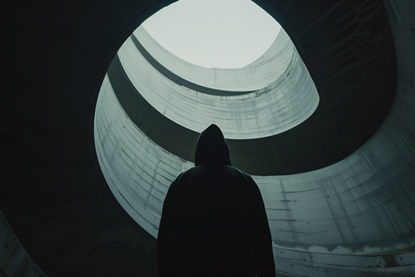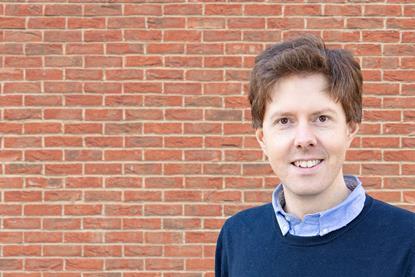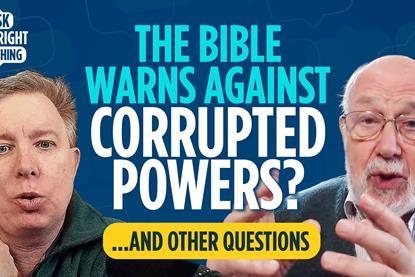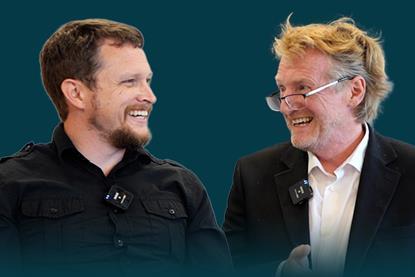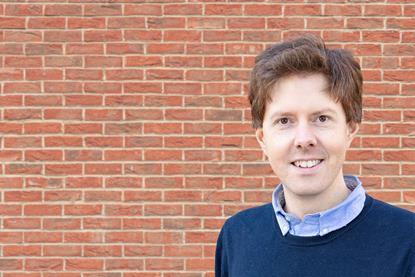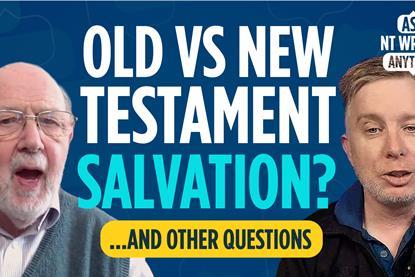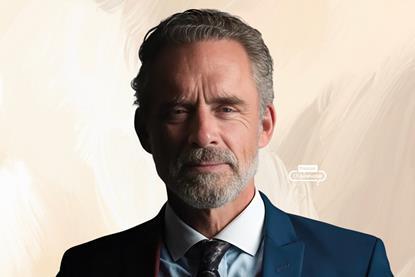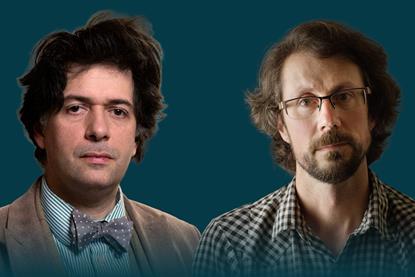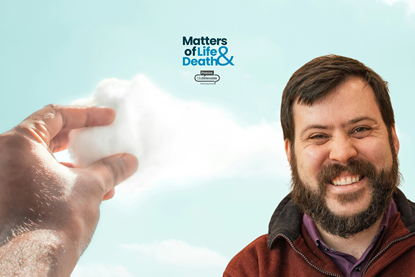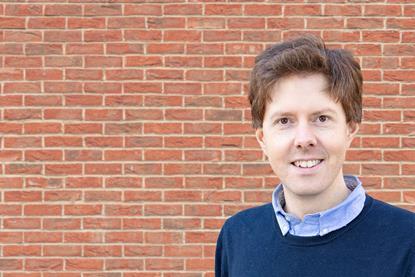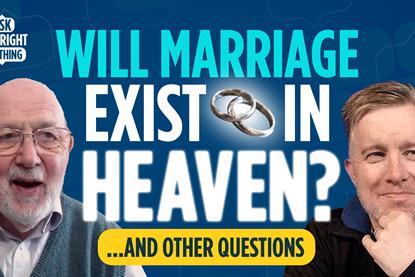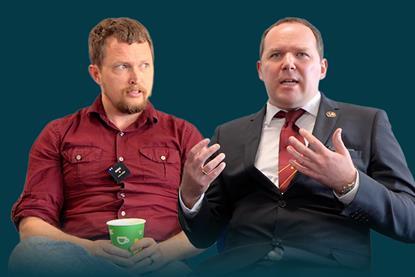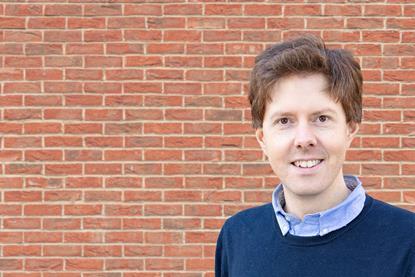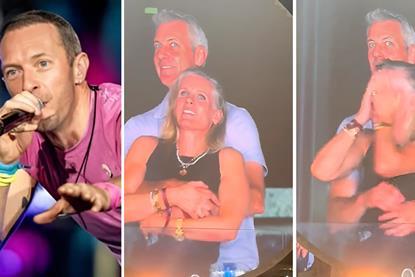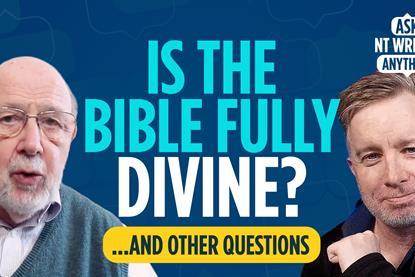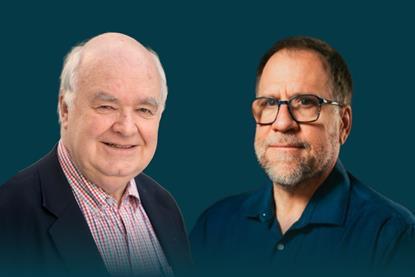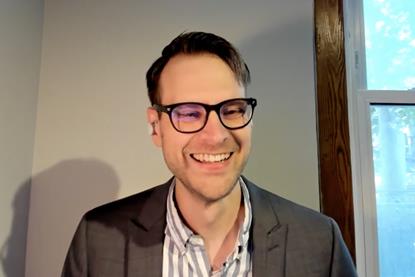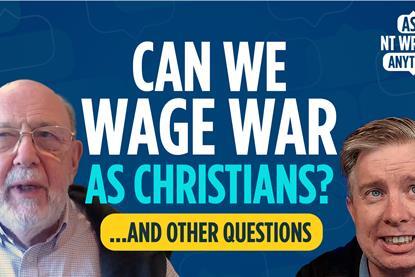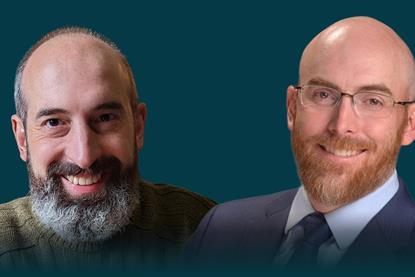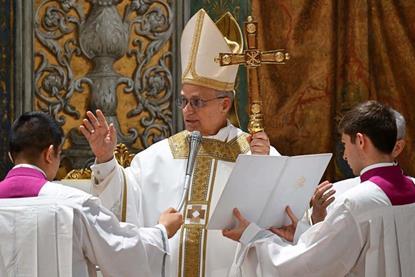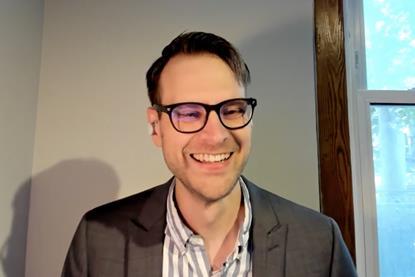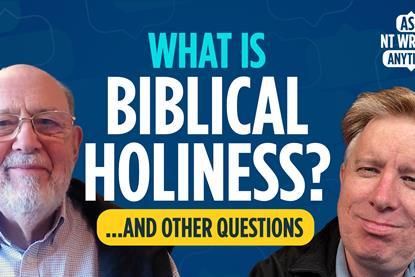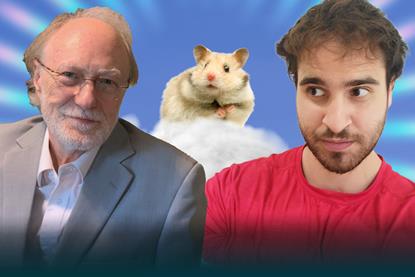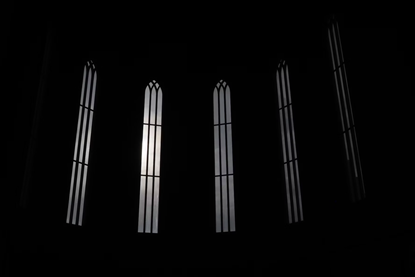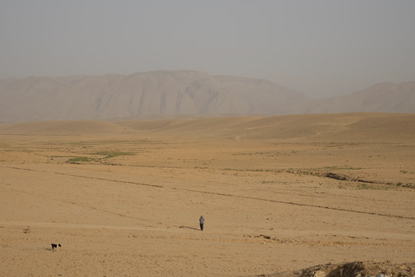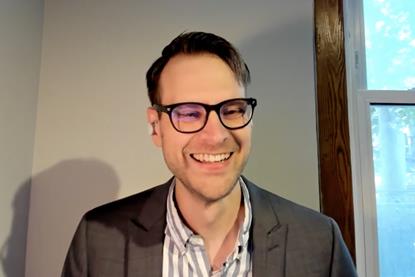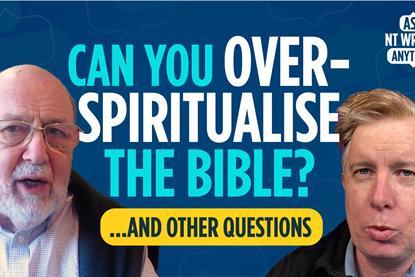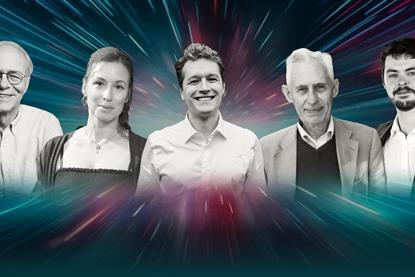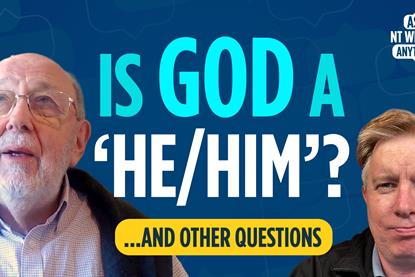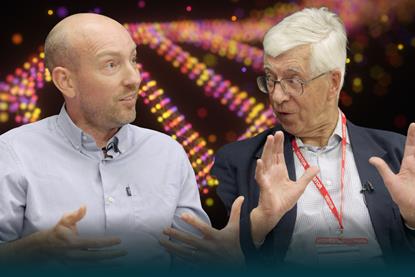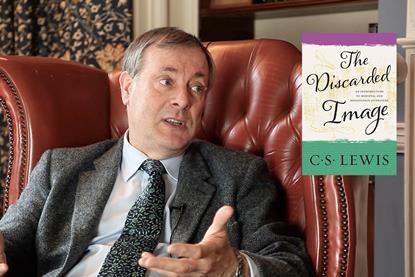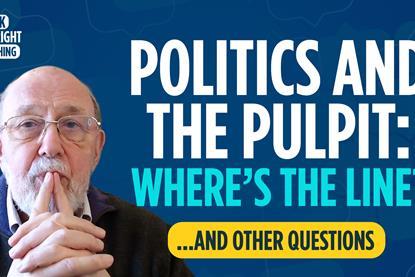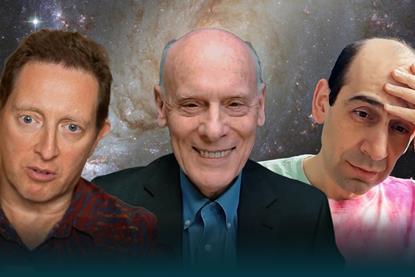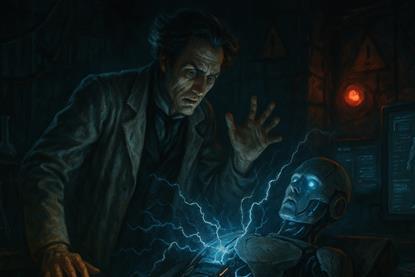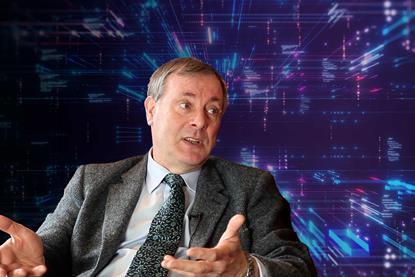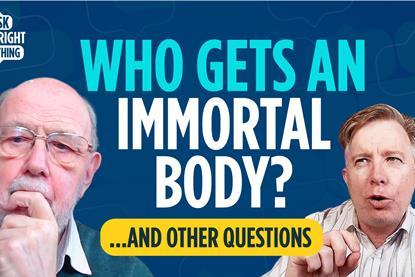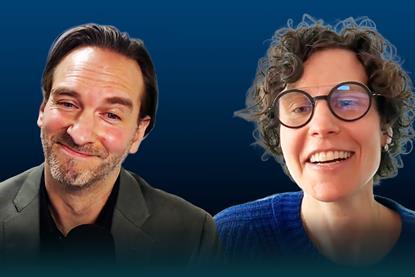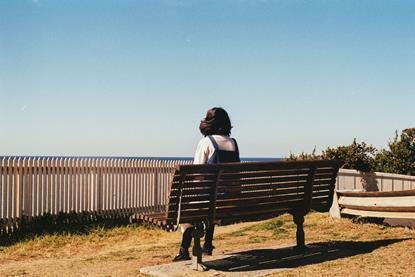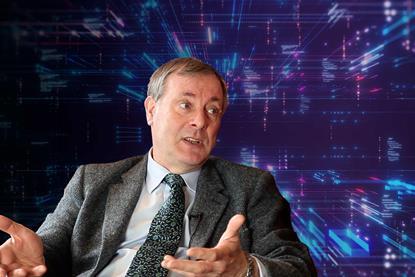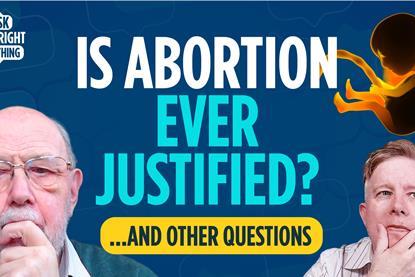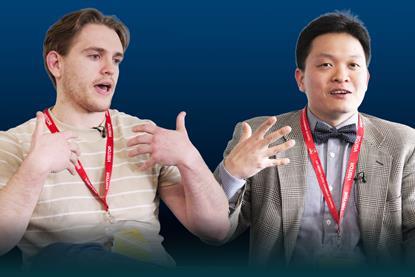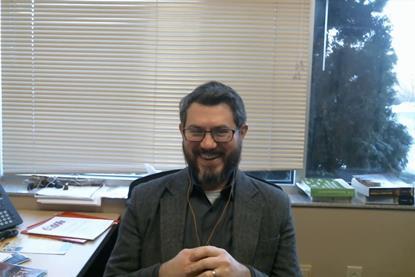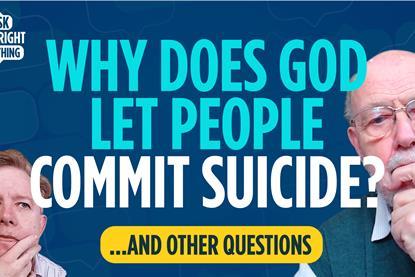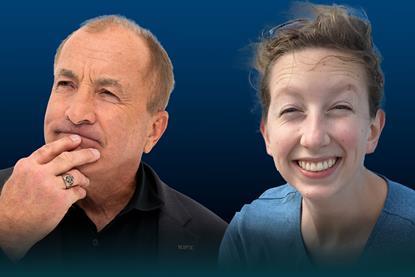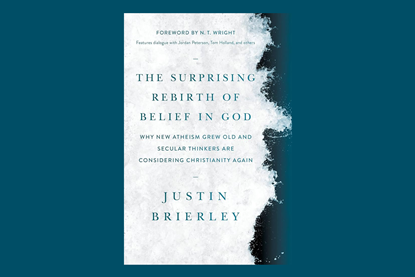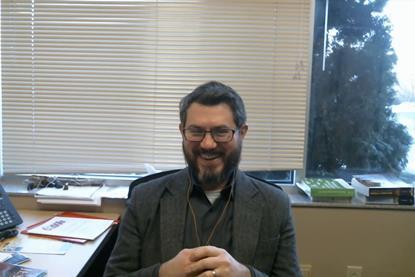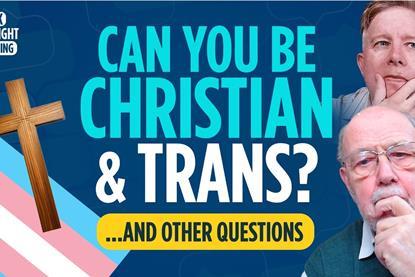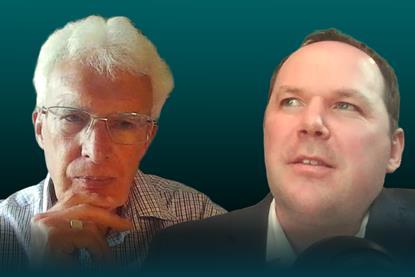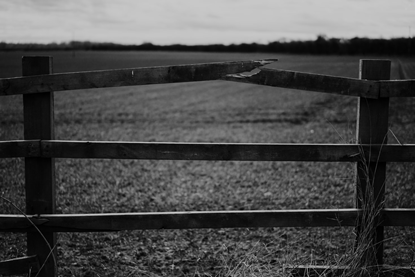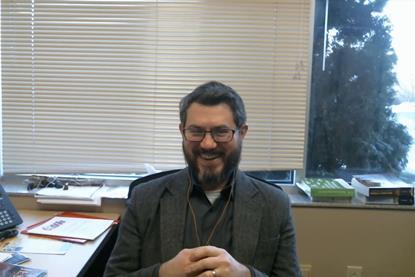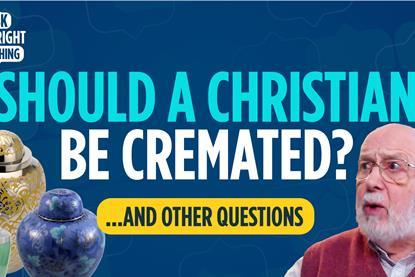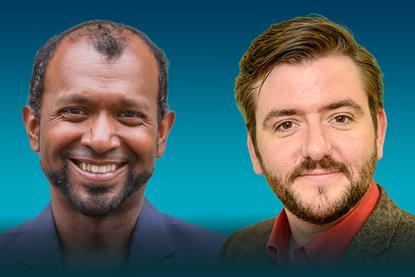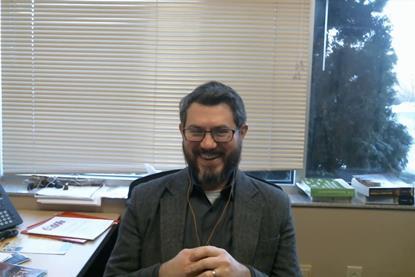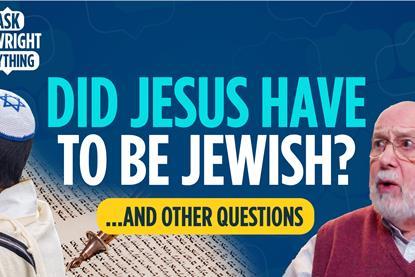Ethics
What makes the church vulnerable to abusers?
This episode tackles the uncomfortable question of why the church—and especially the evangelical tradition—can be so vulnerable to abuse. Psychologist Elly Hanson joins us to explore the cultural and psychological weaknesses that abusers exploit, drawing on her work for the Church of England’s investigation into John Smyth.
#245 Dr Crystal Hurd: Compassion, resilience, and creative leadership in Lewis
Dr Crystal Hurd,discusses CS Lewis as a model of compassionate, resilient, and creative leadership. Together, Ruth and Crystal explore how Lewis demonstrated compassion in his life and work, how he responded to suffering and criticism with resilience, and the ways he inspired others both in his own time and today.
What Does Tom Holland Really Think About Jesus? By Unbelievable host, Dr. John Nelson
Tom Holland has spent years showing how Christianity shaped the West — but last week at All Souls Langham Place, he turned to the harder question: what can we really know about Jesus himself?
Is Christian History objectively bad?
Also on today’s episode, listeners ask whether the “coming of the Son of Man” in Matthew 24 is about Jesus returning or Jesus being enthroned? And why isn’t “all Israel” saved?
Nigel Biggar: “The only reason not to give a reason is that what you’ve done is embarrassing”
Oxford theologian and peer says “illiberal” minorities are narrowing debate on colonial history, free speech, and assisted dying
Is the West Becoming Brave New World? | Rod Dreyer and John Nelson - An Unbelievable Show Special
In this Unbelievable Show Special, John Nelson sits down with Rod Dreher to discuss whether the West is drifting into a “Brave New World.” They unpack Dreher’s warnings about “soft totalitarianism,” why comfort can be more dangerous than control, and how discipleship, beauty, and a hunger for transcendence might offer hope in an anxious age.
The big picture: New creation
In the final episode of our series on the Bible’s big story, we explore the often-overlooked theme of New Creation. Why does the Christian hope for resurrection, heaven, and the renewal of all things matter for how we live and make decisions today?
The World Isn’t Disenchanted - We Are | Malcolm Guite
Malcolm Guite joins Luke Martin for a wide-ranging Unbelievable: The Interview conversation on poetry, faith, and the power of imagination.
The Hidden Country: How Longing Shaped CS Lewis from Atheism to Faith
Few themes are as central to the work of C. S. Lewis as longing. Again and again, Lewis describes a deep, unsettling desire for something beyond the world we know, a yearning that beauty awakens but never satisfies. He famously came to call this experience joy, or by its German name, Sehnsucht.
#244 Dr Crystal Hurd: How CS Lewis became one of the most influential leaders of the modern age
Dr Crystal Hurd explores why CS Lewis remains such a compelling and influential figure today. The conversation ranges across humility, moral vision, courage, intellect, and duty, showing how Lewis translated timeless wisdom into stories and ideas that still resonate.
Why doesn’t the Bible punish men for adultery?
In this episode of Ask NT Wright Anything, Tom Wright and Mike Bird tackle three tough questions: Why does the Old Testament seem to treat women unfairly in adultery cases? What’s the meaning behind the Nazirite vow? And how is Christ really present in the Eucharist?
Decoding the Cosmos: Atheist Philosopher vs Christian Scientist on Fine-Tuning, Time, Incarnation & Alien Life Emily Qureshi-Hurst vs Sam McKee hosted by Andy Kind
In this episode of Unbelievable, Andy Kind sits down with Dr Emily Qureshi-Hurst (Cambridge philosopher of science; author of Decoding the Cosmos) and Sam McKee (Christian scientist & doctoral researcher) for a surprisingly friendly - but rigorous - conversation
Beyond Clichés: Suffering, Sovereignty, and Sharing the Gospel
From a mother walking her son to the edge of life, to a young apologist engaging Muslims in London, this classic New Year conversation explores faith tested by loss, challenged by culture, and sustained by hope without easy answers.
Who do you say I am?
Talk of a renewed openness to God is no longer just anecdotal. Bible Society research suggests church attendance is rising in England and Wales, while publishers report a marked uptick in Bible sales. If something like a “quiet revival” is underway, argues Erik Strandness, the pressing question is whether the Church is ready not only to welcome interest in Jesus, but to introduce people to the Jesus of Scripture.
The big picture: Redemption
In this episode we discuss the mysteries of the cosmic universal story of redemption – with a lamb slain from the foundation of the world alongside a real historical man dying in a real place and time once and for all.
What the new year cannot fix
As the New Year begins, Australia is still reckoning with violence that defies easy explanation. Beyond politics and policy lies a deeper question about evil and whether it can truly be overcome.
#243 Dr Crystal Hurd: Exploring the Transformational Leadership of CS Lewis
Dr Crystal Hurd, an educator, poet, and researcher from Virginia, shares about her extensive work on CS Lewis. Dr Hurd discusses her first encounter with Lewis’ writings and how it transformed her faith and worldview.
CS Lewis, Longing, and the Search for the Hidden Country
What if the deepest ache of the human heart is not a problem to be solved, but a clue pointing beyond this world?
What was John the Baptist doing when he baptised Jews before Jesus’ ministry began?
Do ordained ministers have “more” of the Holy Spirit than lay people? What exactly was John the Baptist doing when he baptised Jews before Jesus’ ministry began? And are the Thirty-Nine Articles still fit for purpose today?
The big picture: Fall
What is the uniquely Christian approach to the nature of evil in our world, and how does it stand in sharp contrast to our secular society’s presumptions? Are people really fundamentally just good or all bad, and what are the shortcomings of that reductionist approach? And how does the Christian story about evil lead us to be both more pessimistic and more optimistic than the world is about humanity?
#242 Charlie Reeder: “The Hidden Country” - Longing and Sehnsucht in CS Lewis’ Earliest Poetry
In this episode of The CS Lewis Podcast, Ruth Jackson introduces a special conference paper by Charlie Reeder, recorded at the 2024 Undiscovered CS Lewis Conference at George Fox University. Charlie explores Spirits in Bondage, Lewis’ little-known first published work, written while he was still an atheist, and argues that it holds the key to understanding Lewis’s lifelong theme of longing.
What did Paul mean by our “Earthly Tent”? And where is Eden?
Where is the Garden of Eden? What did Paul mean by our “earthly tent”? And does Genesis contain later edits, and if so, does that undermine Scripture?
The big picture: Creation
Many Christians, going back to church fathers, have understood the grand narrative of scripture through a four-part journey: from Creation, to Fall, to Redemption, to New Creation. This week we are beginning with creation.
#241 Charlie Reeder: Longing for the Hidden Country: CS Lewis, Sehnsucht, and Spirits in Bondage
In this episode of The CS Lewis Podcast, Ruth Jackson is joined by Charlie Reeder, a recent Oxford graduate whose award-winning research explores the theme of longing in the work of CS Lewis.
Was the Nativity invented to fulfil Prophecy? NT Wright answers
Was Jesus really born in Bethlehem, or did the gospel writers “invent” the story to fit prophecy? Did a Roman census ever force people to travel back to their ancestral towns? And what about Herod’s massacre of the innocents – pure theology, or plausible history?
Is life meaningless without God? A live school debate between Atheism UK and Christian apologist
In this live edition of Premier Unbelievable? from Aylesbury High School in the UK, stand-in host Sam McKee moderates a thought-provoking dialogue between:
Unlocking the menopause, with Dr Rosslyn Perkins
A MOLAD listener got in touch with a fascinating question about hormone replacement therapy and the menopause. If some Christians are becoming sceptical about using hormonal contraception, should they be equally sceptical about the widespread use of hormone replacement therapy for women going through the menopause?
Nigel Biggar on Christianity, Politics, Free Speech & the Future of the West
Lord Nigel Biggar joins Premier Unbelievable? – The Interview host Luke Martin for a wide-ranging conversation on Christianity, politics, and the moral foundations of Western society. A priest in the Church of England, Emeritus Regius Professor of Moral Theology at Oxford, and now a Conservative peer in the House of Lords, Biggar has become one of the UK’s most prominent public intellectuals.
#240 Stefan Knibbe: Lewis’s Shifting Views on Freedom, Suffering, and Hell in Till We Have Faces
Ruth Jackson is joined by theologian and Lewis scholar Stefan Knibbe to explore “revolutions” in CS Lewis’ thinking about freedom, suffering and hell.
Hell, Heaven, and the God of Love: A Fresh Look at Judgment and Mercy
Is Hell compatible with a God of love? Erik Strandness unpacks the theological, ethical, and existential dimensions of divine judgment and what Scripture reveals about our ultimate destiny.
Is Christianity bad?! Has religion done more harm than good? NT Wright and Mike Bird LIVE in London
N.T. Wright and Mike Bird and reunited together in person in Premier’s new London studios for a big Ask NT Wright Anything episode.
Science and the God Hypothesis: Is There Evidence for a Creator in the Modern Scientific Age?
Debates about fine-tuning, complexity and the origins of information continue to shape conversations at the intersection of science and religion. Erik Strandness explores why the resurgence of the God hypothesis is compelling both sceptics and believers to take a fresh look at the evidence.
Did Jesus fulfil Scriptural Prophecy? Jonathan Rowlands vs Rabbi Marc B Shapiro
As Advent approaches, John Nelson hosts Dr Jonny Rowlands (St Mellitus College, UK) and Rabbi Prof Marc Shapiro (University of Scranton, USA) to ask: did Jesus fulfil scriptural prophecy?
Designer babies: Are children commodities or gifts?
We begin by exploring the remarkable offering of PickYourBaby.com, from a company which claims it can help you select the precise genetic inheritance of your child through IVF, to ensure your offspring are taller, more beautiful, healthier and cleverer.
#239 Stefan Knibbe: CS Lewis on Freedom, Suffering, and Hell
Stefan Knibbe joins to share how his studies led him to focus on the works of CS Lewis and how Lewis has shaped his thinking and faith. He speaks about his paper, “Freedom, Suffering, and Hell in Till We Have Faces: Lewis’ Shifting Views,” and why Lewis’ ideas on freedom shifted over time.
Why does the New Testament show so much demonic activity? and why are so many young Christians turning to high church traditions?
Demonic activity in the New Testament, the surprising rise of “high church” worship, and whether Christians should be keeping Saturday as the Sabbath…
The Sanity Of Belief - Can God Explain Everything? Joshua Sijuwade vs Julius Weinberg hosted by Andy Kind
Is belief in God rational, or is it something no reasonable person should accept?
Does God care about nations? Colonialism, culture wars and Christian Nationalism with Nigel Biggar
In this conversation we explore why Nigel Biggar decided to re-examine the ethics of colonialism and his reflections on getting dragged into the culture war. And, in the wake of growing Christian Nationalism in the UK, we discuss his views on what place the nation should hold in Christian theology and why more and more people on the political right have come to lament Britain’s lurch out of Christendom and towards secularism over the last century.
Is Patriarchy Actually Biblical? Medieval Historian Beth Allison Barr Responds
Luke Martin sits down with medieval historian and pastor’s wife Prof Beth Allison Barr (Baylor University) to explore how her research on women in late medieval England reshaped her views on “biblical womanhood”.
#238 Joseph Weigel: A paper on Dr. Dimble’s Neutrals
Ruth Jackson is joined by Joseph Weigel, firefighter and podcast host, for the final episode of this series. Joseph gives insight into his paper, titled Dr. Dimble’s Neutrals, that he presented at the 2024 Undiscovered CS Lewis Conference. We then get to hear his paper live from the conference, which was held at Geroge Fox University.
What is real church community?
Tom Wright and Mike Bird begin with a thoughtful look at church models, exploring how the New Testament envisions the people of God, why no single structure is “the” biblical one, and how modern churches can still reflect the unity and mission of early Christian communities.
Who Was Jesus REALLY? Islam vs Christianity Debate | Joe Boot vs Hafsa Satar hosted by John Nelson
Christian thinker Joe Boot and Muslim scholar Hafsar debate what Christianity and Islam each teach about the identity of Jesus — from His birth and miracles to the crucifixion, resurrection, and second coming.
‘Fearfully and wonderfully made’: What does Psalm 139 really mean?
Psalm 139 is one of the most famous and most quoted chapters of the whole Bible. Some indeed have even constructed an entire Christian ethic of the unborn child from its famous central verses. But what do we think David is trying to say in this beautiful and mysterious poem?
#237 Joseph Weigel: CS Lewis, Dr Dimble, and the Mystery of the “Neutral” Beings
Ruth and Joseph explore Dr Dimble’s role in That Hideous Strength and his intriguing idea of “neutral” spiritual beings. They discuss how these neutrals draw on medieval thought, whether Lewis intended readers to take them seriously, and what this reveals about his wider views on the supernatural.
Precision in Faith, Peter the Rock & the Virgin Birth
Mike Bird and N.T. Wright tackle three big listener questions.
Pacifism vs Just War: Should Christians Ever Fight? Brian Zahnd & Andrew Hronich
In our fractured, fearful world, many Christians are asking: Is it ever right to fight? This week on Premier Unbelievable? host Dr John Nelson is joined by Brian Zahnd, pastor and peace advocate, and Andrew Hronich, theologian and defender of Just War theory for one of the most powerful conversations we’ve aired this year.
Can AI make you mad? Chatbots and psychosis, with Dr Daniel Maughan
There’s been a flurry of news stories and even scientific papers exploring the concept of ‘AI psychosis’ – the idea that people can become psychotic and mentally ill having spent too much time locked in hours of conversation with an AI chatbot such as ChatGPT.
The Last Taboo — Kathy Keller on Tim Keller’s Legacy, Idolatry and the World’s Deepest Problem
“You were built to run on God.”
#236 Joseph Weigel: The fairytale of That Hideous Strength
Firefighter and podcaster Joseph Weigel joins Ruth Jackson to explore the “fairy tale for grown-ups” that is That Hideous Strength part of CS Lewis’s Space Trilogy.
Where Do We Go When We Die? NT Wright Answers
In this episode, Tom Wright and Mike Bird field three big listener questions that touch the heart of Christian hope and daily discipleship.
Happiness, humanity, ethics, evolution… what really is the meaning of life? Sam McKee vs Stephen Law hosted by Andy Kind
Can we really know whether God exists… or is belief just a product of evolution and psychology?
Autonomy, suffering and dignity: Christianity and assisted dying
Here in the UK, parliament continues to debate a bill to legalise assisted suicide. As we wait to see whether Britain follows the lead of many other Western nations in introducing a form of assisted dying, we thought we would share as this week’s podcast a lecture John gave recently to the Church of Ireland in Belfast.
#235 Joseph Weigel: A Firefighter on Faith, Courage, and The Abolition of Man
Ruth Jackson talks with firefighter and podcast host Joseph Weigel about CS Lewis’ The Abolition of Man and why its insights into truth, morality, and modern culture still matter today. They explore how Lewis’ ideas about courage, sacrifice, and integrity resonate in everyday life and ask whether these themes have any relevance to the challenges faced by first responders.
Who wrote Hebrews? and who goes to Hell?
Mike Bird and Tom Wright take on three weighty listener questions that dive deep into the Bible’s mystery, mercy, and meaning in this episode of Ask NT Wright Anything. They begin by exploring the mystery of who wrote the Letter to the Hebrews, unpacking why the early church left the author anonymous and how that shapes our reading today.
Beyond Naturalism: What’s Real? Dr. Alex Carter vs Dr. Zachary Ardern - Hosted by Sam McKee
What is really real? In this wide-ranging conversation, Dr Zachary Ardern (evolutionary biologist, Wellcome Sanger Institute), Dr Alex Carter (philosopher, University of Cambridge), and Dr Sam McKee (science historian, Manchester Metropolitan University) sit down to revisit one of the oldest debates in human thought — the relationship between science, religion, and ultimate reality.
Circumcision: Male genital mutilation or vital symbol of religious freedom?
A listener in the United States has written in pondering the, ahem, sensitive issue of circumcision. In America it’s been commonplace as a medical procedure for newborn boys for generations, while in the rest of the world it’s almost exclusively a Jewish or Muslim religious rite of initiation. Does circumcision actually offer any real medical benefits?
Keith & Kristyn Getty: Why Congregational Singing Matters
In our inaugural episode of Premier Unbelievable: The Interview, host Luke Martin sits down with modern hymn writers Keith and Kristyn Getty—the duo, alongside Stuart Townend, behind the global hymn “In Christ Alone.”
Why Wisdom Is More Than Knowledge: Claire Gilbert, Harry Amos, and the Soul Debate
In this reflection on an Unbelievable? conversation, author Erik Strandness explores the soul, the limits of academic abstraction, and the need for wisdom forged in real life—not just in the ivory tower. Drawing on the debate between philosopher Harry Amos and Christian ethicist Dr Claire Gilbert, Strandness asks whether dissecting life for truth risks losing the awe, mystery, and meaning that make us truly human.
#234 Lilian Lindén: Did Lewis credit Barfield for what he learned from Steiner?
Ruth Jackson speaks with Lilian Lindén, who has a degree in philosophy of religion, about her paper from the 2024 Undiscovered CS Lewis Conference held at George Fox University. Her paper was titled Did Lewis credit Barfield for what he learned from Steiner?. We then get to hear her paper live from the conference.
Christian Apologist on Navigating the Fallout of Charlie Kirk’s Murder: Facts Care About Your Feelings After All
In the wake of Charlie Kirk’s killing, our nation confronts a familiar crisis: the temptation to dehumanise those with whom we disagree. Christian apologist Abdu Murray argues that the way forward requires integrating truth and compassion - recognising that facts and feelings are not enemies, but part of what it means to be fully human.
Help N.T. Wright! Please clarify salvation
In this episode of Ask NT Wright Anything, Tom Wright and Mike Bird tackle three deep listener questions: Should we pray for Satan? What did Jesus mean by “paradise” to the thief on the cross?
Why Historians Agree Jesus Was Known as an Exorcist - Ancient Evidence & Modern Scholarship
Did Jesus cast out demons as a miracle-working prophet - or was he seen as a sorcerer by his critics? While early opponents didn’t deny his extraordinary deeds, they debated the source of his power. Today, historians across worldviews widely agree: in his own time, Jesus was famously known as an exorcist. Discover why this reputation matters for understanding his identity, mission, and the historical roots of the gospel story.
Atoms, Aliens and the Meaning of Everything: Paul Ewart vs Simon Walker-Samuel hosted by Sam McKee
Premier Unbelievable guest-hosted by Dr Sam McKee heads to John Colet School in Wendover, UK for a lively debate on science, religion and reality with Oxford atomic & laser physicist Prof Paul Ewart (Christian; former Faraday Institute director, ex-president of Christians in Science) and UCL biophysics & imaging expert Prof Simon Walker-Samuel (trustee, Humanists UK).
Gender dysphoria and trans children
This episode revisits a vital conversation with Christian paediatrician Julie Maxwell about the surge in children experiencing gender dysphoria. We discuss the evidence behind medical treatments like puberty blockers, the complexities facing families and professionals, and how Christians can respond with both compassion and faithfulness in a polarised debate.
#233 Lilian Lindén: CS Lewis, Owen Barfield, and the Great War
Ruth Jackson speaks with Lilian Lindén about CS Lewis’ early philosophical development and his long-running debate with his friend Owen Barfield, the so-called “Great War.” They unpack Lewis’s shift from realism to idealism, explore Barfield’s influence through anthroposophy, and consider how figures like Rudolf Steiner shaped their discussions.
Should we abandon our parents?
In this episode of Ask NT Wright Anything, Tom Wright and Mike Bird tackle three deep and very human questions - about miracles, the Trinity, and discipleship.
Can Christianity Save Democracy? Os Guinness v Jonathan Rauch hosted by Vince Vitale
Can Christianity save democracy? Vince Vitale hosts a frank, generous exchange between social critic Os Guinness and author Jonathan Rauch about faith’s civic foundations, liberalism, and power. This is one we’ve been looking forward to!
Making human egg cells out of skin, and other mysteries
This episode explores a groundbreaking new technology that could allow babies to be created from skin cells - raising profound questions about ethics, identity, and the future of reproduction. Plus, we tackle whether Christians should expect to perform miracles even greater than those of Jesus himself.
C.S. Lewis on Theology: A New Mini-Series with Alister McGrath presented by Ruth Jackson
What does it mean to take C.S. Lewis seriously as a theologian? In this new series of The C.S. Lewis Podcast, host Ruth Jackson and Professor Alister McGrath delve into Lewis’s theology - his defence of miracles, his understanding of Scripture, and his vision of faith that unites reason and imagination.
#232 Lilian Lindén: The influence and relevance of CS Lewis today
Ruth Jackson speaks with Lilian Lindén, who has a degree in philosophy of religion, about how C.S. Lewis continues to shape faith and thought today. They discuss how she first encountered Lewis, the impact his writings have had on her life, and why his ideas remain so compelling more than 60 years after his death.
Gender Hierarchy, Habakuk 2:4, What bits of the Bible did Paul write? Did Paul write the Pastoral Epistles?
In this episode of Ask NT Wright Anything, Tom Wright and Mike Bird tackle tough questions on gender hierarchy, Paul’s use of Habakkuk 2:4, and the authorship of the pastoral epistles. They clarify what “submission” really means in Ephesians, explore the dual meaning of faith in Habakkuk, and discuss whether Paul wrote all the pastoral letters - and why these debates still matter for Christians today.
Does Science Make God Unnecessary? Alex Carter vs Zachary Ardern hosted by Andy Kind
In today’s Unbelievable? school debate, Zachary Ardern, a Christian biologist, and Alex Carter, an atheist scientist, face off on whether scientific progress has made belief in God obsolete.
Union and communion: The Trinity demystified
In this episode of Matters of Life & Death, we tackle one of Christianity’s most misunderstood doctrines: the Trinity. Is the idea of one God in three persons just a theological puzzle for scholars, or could it transform our understanding of God and ourselves? Discover how reflecting on Father, Son, and Spirit might unlock new meaning and practical insight for daily Christian living.
We Tried Pizza and Games. Here’s What Really Reaches the Next Generation.
After years of trying to entertain young people into faith, Erik Strandness says it’s time to rediscover the power of real conversation - where questions matter more than lectures.
#231 Alister McGrath: CS Lewis, Christians and the Church
Ruth and Alister explore what those in Christian ministry learn from C.S. Lewis - the “very ordinary layman” who helped shape modern faith. Alister reflects on Lewis’ approach to prayer and spiritual growth, his vision for Mere Christianity and how his theology speaks to the challenges of living faithfully in a post-Christian culture.
Big Bang, fine-tuning and the limits of science – can cosmology point us to a Creator?
Unbelievable? host John Nelson reflects on a debate he hosted between Niayesh Afshordi and Michel-Yves Bolloré about whether cosmology and the Big Bang prove the existence of God—or reveal deeper cosmic mysteries. John Nelson asks, Does Cosmology Prove the Existence of God?
Bishops, Priests, finding a Church and the Universalism Question
In this episode of Ask NT Wright Anything, Tom Wright and Mike Bird tackle big questions on church leadership, finding spiritual community, and the challenge of universalism. They explore the history and purpose of bishops, how to choose a church in a divided world, and what universalism really means for salvation and Christian hope.
Has Science Just Proved God? Michel-Yves Bolloré v Niayesh Asfshordi hosted by John Nelson
Does science point to a Creator—or explain the universe without God? In this spirited Unbelievable? debate, bestselling author Michel-Yves Bolloré and cosmologist Dr Niayesh Afshordi face off on cosmic origins, the Big Bang, and whether fine-tuning and entropy are evidence for God. Hosted by John Nelson, this episode unpacks whether science can truly answer life’s biggest “why” questions, or if faith still has a seat at the table.
The idolatry of Christian Nationalism, with John Heathershaw
This episode of Matters of Life and Death delves into the rise of Christian nationalism in Western politics. John Heathershaw, a Christian professor of international relations, unpacks whether longing for a “Christian nation” is helpful, harmful, or even idolatrous. The episode explores how Christians should engage in politics, what the gospel offers beyond national borders, and how faith responds to a world where power seems to triumph over principle.
#230 Alister McGrath: Theology, miracles and imagination
In today’s episode, Ruth Jackson is joined again by Professor Alister McGrath, to discuss theology in a multi-part series. They explore Lewis’ view on miracles, his belief on the importance of imagination, and how Lewis’ arguments stand up against the New Atheism movement.
The Vision of Ephesians: What is “Sola Scriptura”?
What does Ephesians teach us about God’s purpose for the church? Can we truly trust Scripture if it was passed down through oral tradition? And what role do public confessions of faith play in salvation?
Does God Exist? Shaun Stevenson vs Nathan Elvidge hosted by Andy Kind
In this lively Unbelievable? debate, philosopher Dr Shaun Stevenson and Oxford’s Nathan Elvidge go head-to-head at Waddesdon High School on the question, “Does God exist?” Covering everything from the roots of religious belief to morality, evil, and free will, they challenge each other - and the audience - to think more deeply about faith, doubt, and what makes us human.
Why did a good God create earthquakes and volcanoes? Suffering, creation and natural evil, with Prof Bob White
In this episode, Prof Bob White - renowned geophysicist and former director of the Faraday Institute - tackles some of the toughest questions at the intersection of faith and science. Why do earthquakes, volcanoes, and genetic diseases exist in a world made by a good God? Is suffering in nature a sign of a broken creation, or is there a deeper purpose behind natural disasters? Join us as we explore suffering, creation, and the challenge of “natural evil.”
#229 Alister McGrath: Reflecting on CS Lewis’ work as a theologian
In today’s episode, Ruth Jackson is joined again by Professor Alister McGrath, to discuss theology in a multi-part series. They reflect on Lewis’ work as a theologian, covering questions such as: What are some of the key theological topics Lewis unpacks in his work?
What happens at the End of the Age?
In this episode of Ask NT Wright Anything, Tom Wright and Mike Bird tackle big questions on eschatology, faith, and new creation.
Eternal Torment or Final End? Rethinking Hell | Dan Paterson v Jordan Wood hosted by Vince Vitale
Few topics raise as many questions as hell. Is it eternal torment, final destruction, or something else entirely? In this episode of Premier Unbelievable?, Vince Vitale is joined by Australian apologist Dan Paterson (Questioning Christianity: Is There More to the Story?) and Catholic theologian Jordan Wood (The Whole Mystery of Christ). Together they explore whether the traditional doctrine of Eternal Conscious Torment is biblically and theologically defensible, and why so many Christians today are reconsidering alternative views such as conditional immortality or annihilationism.
Elijah or Obadiah: Should our Christian witness be prophetic, incarnational or both?
This episode explores the tension between being prophetic outsiders - standing apart from culture to call out evil - and incarnational insiders - engaging deeply to influence society for good. Drawing inspiration from the unexpected meeting of Elijah and Obadiah in the Old Testament, we ask: What kind of witness is most faithful to Jesus today?
#228 Alister McGrath: Was CS Lewis a theologian? Part 2
In today’s episode, Ruth Jackson is joined again by Professor Alister McGrath, to discuss theology in a multi-part series. Why do people not consider Lewis a theologian? Who are some of the people who do take him seriously as a theologian, and has he become one in modern times? What can we learn from Lewis’ approach to theology?
Tom, Should We Work Out? Why Is The Bible Authoritative?
In this episode, Tom Wright and Mike Bird answer three big listener questions: Should Christians care about physical fitness, and how does it relate to spiritual health? Why is the Bible authoritative, and how should we understand its authority today? And finally, what did Jesus really mean by the “unforgivable sin”? Join them for practical wisdom and theological insight on faith, body, and Scripture.
Charlie Kirk: A turning point for the US?
The assassination of Charlie Kirk may prove to be a civilisational flashpoint, not unlike Constantine’s victory at the Milvian Bridge. Still, instead of welcoming Christianity into the heart of the West, it could mark the moment the faith was deemed expendable.
Don’t be afraid: The promise and the peril of AI in healthcare
This episode of Matters of Life and Death explores the rise of artificial intelligence in healthcare. While AI promises faster diagnoses and smarter tech, it also raises questions about the loss of human connection and compassionate care. How can Christian healthcare workers continue to embody Christlike presence as medicine becomes more machine-driven?
Charlie Kirk’s Legacy - Preserving Debate in a Polarised Age | Os Guinness, Krish Kandiah, Billy Hallowell
In this week’s show Premier Unbelievable?’s Billy Hallowell is joined by Os Guinness and Krish Kandiah to reflect on Kirk’s legacy, the controversies, and the reckoning his loss demands. How do we preserve free speech without fear? How do we turn down the temperature in our debates?
The CS Lewis Podcast #227 Alister McGrath: Was CS Lewis a theologian?
In today’s episode, Ruth Jackson is joined again by Professor Alister McGrath, to discuss theology in a multi-part series. How do we define theology? What is Alister’s experience with it? Was Lewis considered a theologian by others, or even himself?
Did God create 100 billion people just to send them to hell?
Tom and Mike tackle how to wisely choose a church, which catechism has most shaped Tom’s faith, and whether God created billions only for judgment - offering insight into worship, teaching, and the hope of God’s love.
Do we have a soul? Or are we just bodies and brains? Is death the end? Dr Claire Gilbert vs Harry Amos
In this live edition of Unbelievable?, Andy Kind hosts a fascinating conversation on the nature of the soul and spiritual experience.
Charlie Kirk Dead: Faith, Politics, and a Nation on Edge
The shocking assassination of conservative activist Charlie Kirk on September 10, 2025 has exposed deep rifts in America’s struggle over faith, politics, and identity.
Euthanasia for newborn babies, pagan philosophies and Christian witness in a post-Christian age
This episode explores the ethical and cultural challenges posed by proposed euthanasia laws for newborns in Canada. It examines the contrasting philosophies behind medical decisions for babies, the early church’s radical witness against pagan practices, and how Christians today can uphold the full dignity of every child in an increasingly post-Christian world.
The CS Lewis Podcast #226 Paul Anderson: Fern-Seed, Elephants, Bultmann, and Lewis - Varied Expertise in Critical Perspective
We are joined again by Paul Anderson, a Professor of Biblical and Quaker Studies at George Fox University in Oregon, for the final episode in this series. In today’s episode, we get to hear his paper, which was titled Fern-Seed, Elephants, Bultmann, and Lewis - Varied Expertise in Critical Perspective, live from the 2024 Undiscovered CS Lewis conference.
Should Church Leaders Be Ordained? Are We Needed To Usher In The New Creation?
Mike Bird and Tom Wright take on three big listener questions. How do we actually cooperate with the Spirit in God’s plan for new creation? Tom reflects on what it means to anticipate heaven and earth being joined, and how our present faithfulness participates in that future hope.
Should AI be trusted with Moral decisions? | Cambridge & Oxford Philosophers Discuss
In this second part of our Premier Unbelievable? schools debate with Aylesbury Youth or Christ, host Andy Kind is joined once again by philosophers Dr Amna Whiston (Oxford University) and Dr Alex Carter (Cambridge University) to explore the ethical dilemmas raised by artificial intelligence.
How we all came to think science and religion were at war
This classic MOLAD episode features Nick Spencer, author of Magisteria, exploring the myth that science and religion are natural enemies. The conversation uncovers the complex history behind this idea, asks whether faith and science really need to be kept separate, and reveals the overlooked spiritual lives of some of history’s greatest scientists.
The CS Lewis Podcast #225 Paul Anderson: CS Lewis, the Bible and theology
Paul Anderson, a Professor of Biblical and Quaker Studies at George Fox University in Oregon, is back to discuss C.S. Lewis’ approach to the Bible and theology.
Did Jesus Know He Was Divine?
Mike Bird and Tom Wright tackle three big listener questions. First: did Jesus know he was God - and if so, in what sense? Tom explores how Jesus reframes what we mean by “God,” drawing on the Gospels and Philippians 2.
Read My Lips: Tom Wright Does Believe in Penal Substitutionary Atonement
For years, Tom Wright has been accused of denying penal substitutionary atonement (PSA) - but is this fair? In a special bonus episode of Ask NT Wright Anything, Tom sits down with Mike Bird to clarify his true views on the cross, challenge common caricatures, and invite listeners into a richer, more biblical understanding of atonement that goes beyond slogans and controversy.
Why does a ‘Good God’ allow Suffering and Evil? Dr Joshua Sijuwade vs Dr Stephen Law
In this edition of Unbelievable?, Christian philosopher Dr. Joshua Sijuwade debates atheist philosopher Dr. Stephen Law on whether the reality of suffering undermines belief in God - or whether there are good reasons a loving God might allow it.
A Womb in Limbo: Life Support, Law, and Medical Ethics
This episode of Matters of Life and Death tackles a controversial case from Georgia, USA, where doctors kept a brain-dead pregnant woman on life support for months so her unborn child could be born. We explore the ethical, legal, and emotional dilemmas this raises for families and medics.
More Than a Love Story: Taylor Swift and the Burden We All Carry
Taylor Swift’s engagement to Travis Kelce is more than a celebrity love story - it’s a mirror for our own longings and the pressure to “have it all.” As Swift’s journey resonates with millions, this article explores the relentless burdens modern women face and the deeper freedom Jesus offers: not in perfection or applause, but in knowing we are already enough.
The CS Lewis Podcast #224 Paul Anderson: Lewis, Bultmann, Fern-seeds and Elephants
Ruth Jackson is joined again by Dr Paul Anderson, Professor of Biblical and Quaker Studies at George Fox University. Together, Ruth and Paul explore Lewis’ classic essay Fern-seeds and Elephants, in which Lewis critiques biblical scholarship with his memorable “four bleats.”
Can you lose Salvation? Why do churches keep splitting? What is covenant theology?
In this episode of Ask NT Wright Anything, Tom Wright and Mike Bird tackle church divisions, explain the differences between covenant theology and dispensationalism, and explore the Salvation Army’s unusual stance on sacraments. They dig deep into Hebrews 6, wrestling with what it really says about salvation security.
Has Christianity Lost Its Stickiness? Paul Kingsnorth & Bijan Omrani Debate Faith’s Future
Is Christianity’s decline a modern phenomenon, or has the West been losing its spiritual glue for centuries? In this thought-provoking Unbelievable? conversation, historian Bijan Omrani and writer Paul Kingsnorth explore how technology, culture, and shifting definitions of faith have shaped the church’s relevance - and whether today’s spiritual revival is the real thing or just another fleeting trend.
Can AI Create or Feel? Dr Amna Whiston & Dr Alex Carter debate Human vs Artificial Intelligence
What does it really mean to think, create, or feel? Are we losing our humanity in the age of AI - or discovering it anew? In this live schools debate with Aylesbury Youth For Christ, Premier Unbelievable? host Andy Kind is joined by Dr Amna Whiston (Oxford) and Dr Alex Carter (Cambridge) to explore the limits of artificial intelligence.
Healed by prayer: Should Christian doctors believe in faith healing?
A doctor listener has written in with a fascinating question about miraculous healing. It was clearly a major part of Jesus’s ministry in the gospels, and yet she has doubts despite prayer for healing becoming a larger and larger part of her church’s life.
The CS Lewis Podcast #223 Paul Anderson: CS Lewis and the Gospel of John
Ruth Jackson is joined with Paul Anderson, a Professor of Biblical and Quaker Studies at George Fox University in Oregon. Paul speaks on his first encounter with C.S. Lewis and the role Lewis’ works have played in his own life, ministry, and scholarship.
The Big Bible episode: Canon, Contradictions & Tradition
In this Big Bible Episode of Ask NT Wright Anything, Tom Wright and Mike Bird dig into big, timeless questions about the canon of scripture, how inspiration works, and why apparent contradictions in the Gospels don’t undermine their truth. They unpack how tradition and fresh interpretation must stay grounded in the historical context of the text, and why the church must always be, as Tom says, “semper reformanda” - always reforming around the Bible’s authority.
Are Animals Moral Agents? Why Only Humans Step Off the Hamster Wheel
Do animals deserve moral standing, or is morality a uniquely human trait? In this article, we examine whether animal rights arguments from Peter Singer and others hold up, and why the Christian worldview sees humans - not animals - as responsible moral agents called to care for creation.
Did Christianity Build the West? Glen Scrivener vs Atheism UK President John Richards
In this lively schools debate, Glen Scrivener and John Richards face off on whether Christianity shaped Western morality or if values like equality and compassion evolved naturally, with Andy Kind moderating a passionate discussion on faith, history, and society.
Conspiracy theories, mRNA, covid and autism: Why do so many struggle to get on board with vaccines?
This episode examines the rise of vaccine scepticism, fuelled by figures like Robert F Kennedy Jr and pandemic-era hesitancy. It explores the evidence for vaccine safety, questions about side effects and rushed COVID rollouts, and asks why mistrust - especially among Christians - remains high, considering whether the church is particularly susceptible to conspiracy thinking.
The CS Lewis Podcast #222 Dr. Max Baker-Hytch: Lewis and the argument from desire
Today we are joined by Dr. Max Baker-Hytch, a tutorial fellow in Philosophy at Oxford University, to discuss Lewis and the argument from desire. Covering topics such as whether our deepest longings point to the existence of another world, how naturalists might respond, and whether such desires could have evolutionary origins.
Jesus and the powers, Why does it take the Anglicans so long to choose an Archbishop? What are healthy spiritual practices?
In this episode of Ask NT Wright Anything, Tom Wright and Mike Bird unpack what it means to lead the Anglican Church, the role of the Archbishop as a unifier, and why true leadership needs spiritual depth, not just management skills. They share how practices like the Psalms help Christians face spiritual anxiety and keep their focus on God.
Does humanism or Christianity offer the world a better future? Mike Jones “Inspiring Philosophy” vs Stephen Law
What kind of future does humanity need? One shaped by Christian theism or guided by secular humanism? In this edition of Unbelievable?, philosopher and atheist Dr. Stephen Law goes head-to-head with Christian apologist and YouTuber Mike Jones (Inspiring Philosophy) to debate which worldview offers a stronger foundation for meaning, morality, and human flourishing.
One in five pregnancies: How we’re talking differently about miscarriage, and what that may mean for abortion
This classic Matters of Life and Death episode explores how society’s approach to miscarriage and baby loss has shifted toward greater empathy, and what that means for parents and churches. The episode also examines the contrasting ways we talk about abortion and baby loss, asking whether Christians should address these inconsistencies in advocacy.
The CS Lewis Podcast #221 Dr. Max Baker-Hytch: Lewis and the argument from reason
Today we are joined by Dr. Max Baker-Hytch, a tutorial fellow in Philosophy at Oxford University, to discuss Lewis and Lewis’ argument from reason, as explored in Miracles and beyond.
Faith, belief, and the fall of Jerusalem: what are we missing?
In this episode of Ask NT Wright Anything, Tom Wright and Mike Bird unpack the difference between faith and mere belief, showing how true biblical faith means trust, faithfulness, and allegiance to Jesus as King.
Is Jordan Peterson’s Religious Ambiguity Undermining His Intellectual Legacy?
Jordan Peterson’s refusal to clarify his religious beliefs is drawing scrutiny from both his secular and Christian followers, raising questions about whether his signature ambiguity now undermines his credibility. As calls for authenticity grow louder, is Peterson’s legacy as a bold thinker at risk if he continues to sidestep the question of faith?
Christianity in England: A Dying Faith or a Sleeping Giant? Bijan Omrani and Paul Kingsnorth with Andy Kind
Is Christianity in England dead - or just sleeping? Historian Bijan Omrani, author of God is an Englishman, and acclaimed writer and former environmental activist Paul Kingsnorth, who converted to Christianity after exploring Wicca and Zen, join host Andy Kind for a powerful conversation about spiritual hunger in post-Christian Britain.
AI scepticism and the end of creativity, with Caleb Woodbridge
In this episode, we discuss these ideas with Caleb Woodbridge, an editor and writer who recently published an intriguing manifesto on how to maintain our humanity in the age of AI.
The CS Lewis Podcast #220 Dr. Max Baker-Hytch: The Moral Argument for God’s Existence
Today we are joined by Dr. Max Baker-Hytch, a tutorial fellow in Philosophy at Oxford University, to discuss Lewis and the moral argument for God’s existence. What did Lewis mean by a universal moral law, and why did he think it pointed to something beyond nature?
Will I Still Be Married in Heaven?
Will we ever see an OT Wright translation to match NT Wright’s New Testament for Everyone? Tom explains why an Old Testament version isn’t on the cards - but offers a witty alternative involving his son! The conversation moves on to remarriage, exploring whether we’ll still relate to our spouses in the same way in the new creation, and how Jesus’ words in the Gospels shape our understanding of life after death.
Is it still reasonable to believe in God as we move deeper into the 21st century? Mike Jones “InspiringPhilosophy” and Sam McKee
Should weToday we’re talking, DNA resetting, AI, Mars colonies, and the future of faith on the podcast, confronting a burning question: Is it still rational to believe in God in an age of accelerating science and technology?
The Enhanced Games: Should we all want to become superhumans?
This episode explores the controversial Enhanced Games, where athletes can use any drugs or technology to boost their performance. As human enhancement moves from sci-fi to reality, the conversation unpacks ethical questions about biohacking, technology, and how Christian beliefs should guide our response.
The CS Lewis Podcast #219 Dr. Max Baker-Hytch: Was C.S Lewis a philosopher?
Today we are joined by Dr. Max Baker-Hytch, a tutorial fellow in Philosophy at Oxford University, to discuss Lewis and philosophy. Did C.S. Lewis consider himself a philosopher, and should we?
Why Morality Can’t Evolve: Erik Strandness Responds to Peter Singer, Alex O’Connor, Jessica Frazier and Richard Swinburne
Is morality just a product of evolution, emotion, or emergent complexity - or is it grounded in a transcendent God? In this powerful response to a recent Unbelievable? podcast debate, Erik Strandness critiques the contributions of Peter Singer, Alex O’Connor, Jessica Frazier, and Richard Swinburne, arguing that only a theistic framework can truly account for objective moral values.
The Coldplay Kisscam Scandal: The Click That Cost More Than I Thought
Yes, I clicked on it. That headline - arguably the most irresistible pop story of 2025 - practically forced my thumb to press down. It was on the BBC, after all.
God’s Word, Human Words, and Political Idols
In this episode of Ask NT Wright Anything, Tom Wright and Mike Bird tackle the controversial topic of Christian nationalism, reflect on the complex relationship between Jesus and the Bible, and unpack what penal substitutionary atonement really means within the bigger story of salvation. They also share wisdom on how and why to talk about deep theology with children.
AI, Meaning & the Logos: John Lennox vs John Vervaeke on the Future of Faith and Humanity
What does it mean to be truly human in an age of artificial intelligence, declining religious belief, and rising spiritual hunger? Oxford mathematician and Christian apologist Professor John Lennox and cognitive scientist Dr John Vervaeke of the University of Toronto explore whether AI threatens or reveals our uniqueness, if meaning can exist without God, and whether spiritual transformation is possible in a post-religious age.
Can Christians work in the arms industry?
This episode tackles whether Christians can work in the arms industry and how to discern God’s will in tricky ethical careers. It also explores the unintended consequences of at-home DNA testing, reflecting on how Christians should navigate a world obsessed with genetics and family identity.
The CS Lewis Podcast #218 Traver Carlson: Re-veiling the Secret: Reading The Ransom Trilogy as Spiritual Exercise
Ruth Jackson is joined by Traver Carlson, a PHD candidate in Philosophy at the Institute for Christian Studies, to discuss his paper from the 2024 Undiscovered CS Lewis Conference, titled Re-veiling the Secret: Reading The Ransom Trilogy as Spiritual Exercise.
Who were "the sons of God" in Genesis 6?
In this episode of Ask NT Wright Anything, Tom Wright and Mike Bird unpack deep questions about God’s enduring love for Israel, the ethical challenges of working in defense and military industries, the mysterious “sons of God” in Genesis, and the ongoing meaning of Passover and foot washing for followers of Jesus today. The conversation wrestles with ancient texts, modern dilemmas, and how to live faithfully in a complex world.
Is Empathy a Sin? Can caring too much ever become morally wrong? Dr. Joe Rigney and Dr. Alastair Roberts
Joe Rigney calls empathy a sin. Alastair Roberts says not so fast. Who’s right? Today, we explore a question at the heart of pastoral care, public witness, and Christian leadership: Is empathy a virtue to be cultivated or a vice to be resisted?
The Shroud of Turin: History’s Greatest Hoax - or the Face of the Resurrection?
Is the Shroud of Turin a medieval fake or the actual burial cloth of Jesus Christ? Long dismissed as a pious fraud, this mysterious linen cloth has drawn renewed interest from scientists and sceptics alike. A growing body of evidence now challenges the 1988 carbon dating and suggests the Shroud may be far more than just a curious relic.
The new Pope, Catholic Social Teaching and a second industrial revolution
On his second day in office, Pope Leo XIV signalled that Catholic Social Teaching may be vital for today’s AI-driven industrial revolution, just as it was during the age of steam. Catholic theologian Luke Arredondo joins us to explore what this could mean for the Church and society.
The CS Lewis Podcast #217 Traver Carlson: The Ransom Trilogy, Space and Medieval Imagery
Ruth Jackson is joined by Traver Carlson, a PHD candidate in Philosophy at the Institute for Christian Studies, to discuss his paper from the 2024 Undiscovered CS Lewis Conference, which focuses on The Ransom Trilogy.
What does the Bible mean by a hardened heart, ‘filled’ by the Spirit and to be ‘holy’?
What is biblical holiness? Can a heart be so hardened that it’s beyond saving? Does the Holy Spirit still give personal promises today? And what does it mean to be truly ‘filled’ with the Spirit?
Christianity vs Reincarnation: Heaven, Dinosaurs and Angels | Andrew Hronich vs Dr Dale Allison Jr hosted by Andy Kind
This week on Unbelievable. Do animals go to heaven? Do humans become angels? Do we start families in the afterlife? And what about reincarnation? Is that really off the table for Christians?
Doubt: Facing Our Questions, Finding the Way [Part Two]
“Doubt comes in at the window when inquiry is denied at the door.” - Benjamin Jowett, the 19th-century Oxford theologian and reformer known for championing honest faith and rigorous questioning.
Abortion decriminalised (Part 2)
The rapid liberalisation of UK abortion law was shaped by precedent in Northern Ireland and accelerated by COVID-era telemedicine, leading to increased prosecutions for late-term abortions. As decriminalisation may soon become law, the pressing question is how Christians and the church should respond—through advocacy, prayer, or practical action to reduce abortion demand.
Doubt: Facing Our Questions, Finding the Way [Part One]
A recently re-broadcast Classic Unbelievable? episode captured this tension perfectly, as agnostic Andrew Whyte sat down with pastors Dominic Done and Greg Boyd. The conversation wasn’t just powerful - it was painfully honest. What happens when those called to shepherd are themselves wounded by unanswered questions?
The CS Lewis Podcast #216 Traver Carlson: The Impact of CS Lewis today
Ruth Jackson is joined by Traver Carlson, a PHD candidate in Philosophy at the Institute for Christian Studies, to discuss his paper from the 2024 Undiscovered CS Lewis Conference.
Can we read Jesus into every Old Testament story?
What did Jesus really mean in the Olivet Discourse? How should we read the Old Testament in light of the New? And what can Herod’s strange reaction to Jesus teach us about resurrection and eschatology?
The Mystery of Morality | Alex O’Connor, Richard Swinburne, Jessica Frazier and Peter Singer hosted by Jack Symes
What grounds morality… and who counts? Is morality hardwired into us by evolution, shaped by culture, or guided by religion? In this live edition of the Unbelievable? Podcast recorded in London and hosted by public philosopher Jack Symes, four leading thinkers explore the origins and future of ethical thought.
Abortion decriminalised (Part 1)
Parliament has quickly passed a major reform decriminalising abortion up to birth in England, with little public debate or scrutiny. This episode explores how we reached this point, the history of abortion law in the UK, and what these changes mean, with insight from Dawn McAvoy of Both Lives.
The CS Lewis Podcast #215 Alister McGrath: Exploring The Discarded Image (Part 2)
In part two, Ruth Jackson and Alister McGrath explore how CS Lewis saw the links between science, philosophy, and faith. They discuss his view that science can point to deeper truths, his idea of Christianity as the “true myth,” and his belief that scientific theories aren’t final facts.
Is God male? NT Wright on gender and divinity
What does the bodily resurrection really mean for Christian faith? How do we live out true discipleship? And how should we talk about God in relation to gender?.
Are we slaves to our genes? Denis Alexander vs Dr Simon Walker-Samuel hosted by Andy Kind
Are we slaves to our genes, and is who we are already written in our DNA? In this live edition of Unbelievable?, recorded at Aylesbury High School, Andy Kind is joined by humanist physicist Dr. Simon Walker Samuel and Christian biologist Dr. Denis Alexander for a lively and thought-provoking debate on genetics, free will, and what makes us… us.
Elizabeth Oldfield: Intriguing non-believers and life in intentional community
Elizabeth Oldfield discusses her new book Fully Alive, the growing curiosity about faith in today’s culture, and her experience living in a modern monastic community practising radical hospitality.
The CS Lewis Podcast #214 Alister McGrath: Exploring The Discarded Image (Part 1)
Ruth Jackson speaks with Alister McGrath about CS Lewis’ final book, The Discarded Image, a reflection on the medieval view of the cosmos. Why did Lewis care so much about this old model of the universe, and what does it reveal about his views on science, imagination, and faith? They explore Lewis’s description of a geocentric, ordered world and how it contrasts with today’s scientific and secular worldview. Could this older picture still speak to us today? And how did Lewis understand the relationship between science and the biblical creation story?
When is Jesus going to return?
What does it mean to live faithfully in a politically divided world? How should Christians respond to immigration and power? And what do Paul’s views on time tell us about the return of Christ?
Battle of the Big Bang: can the universe explain itself? with cosmologists Dr Niayesh Afshordi, Dr Hugh Ross and Atheist Phil Halper
This week on Unbelievable?, Andy Kind hosts a mind-expanding cosmic debate with two leading cosmologists, Dr Niayesh Afshordi and Dr Hugh Ross, joined by science communicator and Battle of the Big Bang co-author, Phil Halper.
Artificial Intelligence: The Beast We Build and the Words We Choose
As artificial intelligence advances at breakneck speed, are we creating a servant, a master—or something far more dangerous? Erik Strandness explores how our quest to “build a better beast” reveals both human ambition and folly, raising urgent questions about language, ethics, and the spiritual risks of playing God in the digital age.
WhatsApp, social media and smart devices: Persecution of Christians goes digital
This classic MOLAD episode explores how modern technology has added a new dimension to the persecution of Christians, with oppressive regimes and extremists using digital surveillance, social media, and smart devices to target believers.
The CS Lewis Podcast #213 Alister McGrath: CS Lewis on science, AI & technology (Part 2)
Alister McGrath reflects on how Lewis’ ideas might speak into today’s rapidly advancing technologies.
Will the resurrection be for all, or just for believers? NT Wright Answers
What is the ‘divine council’ in the Bible? Who receives a ‘resurrection body’? And how can Christians be sure of their salvation?
Can therapy alone heal the soul? Two Psychiatrists Treating BPD & NPD Explore the Search for Meaning | Brandon Unruh vs Claire Brickell hosted by Vince Vitale
Exploring BPD, NPD and Meaning in Christian and Secular Psychiatry.
Is Christianity bad news for women?
This classic episode features Ellidh Cook, a student worker and theologian, discussing the perception of Christianity as “bad news for women.” She explores how faith can be life-giving for both sexes, the church’s challenges in supporting women, and what hope the gospel offers to modern, stressed, and exploited young women.
The CS Lewis Podcast #212 Alister McGrath: CS Lewis on science, AI & technology (Part 1)
In this episode, Ruth Jackson speaks with Alister McGrath about Lewis’ views on science, technology, and ethics.
Is abortion ever justified? Can Lucifer be forgiven? NT Wright answers your questions
Is abortion ever ethically justifiable? Could Lucifer ever be forgiven? And how do Romans 8 and Galatians 4 shape our understanding of grace, law, and inclusion? What an episode!
Adult Conversion vs Leaving the Faith: What’s More Meaningful? Matthew Su & Nathan Ormond | Schools Debate Special
Is it more meaningful to choose Christianity as an adult, or to walk away after growing up in it? In this special schools episode, teenagers ask the tough questions as host Sam McKee moderates a gripping debate between Matthew Su, a Christian convert and PhD candidate at Cambridge, and Nathan Ormond, ex-Christian and creator of the Digital Gnosis YouTube channel.
The Problem of Pain: Why Every Worldview Must Answer the Question of Suffering
Atheists often use the problem of pain and suffering to challenge the existence of God, but this issue isn’t exclusive to Christianity. Every worldview must reckon with life’s harshest realities and not only confront suffering but also offer a meaningful response to it.
Apocalypse: Why do so many feel like the world is coming to an end?
It’s hard to escape the fact that we live in gloomy, despairing times. Whether it is economic stagnation, pandemics, democracy under attack, unending wars or the climate crisis, more and more people feel like things are falling apart. That maybe even the world is coming to a depressing end. How did things get this hopeless, given the relatively recent optimism and energy of the past? Must Christians by default oppose this kind of despair, and what does the Bible have to say about watching the signs of the times? And given apocalypse literally means a time of uncovering and revealing, what should we have our eyes open to in this season of revelation?
The CS Lewis Podcast #211 Nathan Fayard: Exploring the Inversion of the Satanic Hero.
Explore the depths of CS Lewis’s thought and theology in our latest podcast episode with Dr. Nathan Fayard from Indiana Wesleyan University. Specialising in old English literature and medievalism, Dr. Fayard discusses his latest work, “The Recovered Images.” We dive into his presentation from the 2024 Undiscovered CS Lewis Conference titled “Prometheus on Perrelandra: The Inversion of the Satanic Hero in CS Lewis’s Perelandra.”
Suicide and Salvation: What does NT Wright say?
How should Christians think about suicide and heaven, baptism and christenings, and the biblical teaching of the Trinity?
Is the natural world evidence of design, or the result of random processes? Rachel G Jordan vs Michael Shermer hosted by Andy Kind
In this episode of Premier Unbelievable? comedian and host Andy Kind welcomes marine biologist and Christian author Rachel G. Jordan, author of If the Ocean has a Soul, and sceptic science-historian Dr Michael Shermer, founder of Skeptic Magazine and author of The Moral Arc, for a dynamic conversation exploring whether nature reveals divine purpose or reflects impersonal forces.
Sex, dinosaurs, bodies and climate change: Parenting children in our confusing and confused world
Today we’re sharing an episode of the Faith in Parenting podcast, run by the Faith in Kids team, which we took part in some months ago. We were kindly asked on to chat about being Christians and being parents, and in particular how we handle sometimes tricky questions and issues that come up from the natural world and in science. And Tim got to share the good and the bad bits of being raised by John, and how science and sex and bodies and dinosaurs and everything else got handled in the home.
Is the Tide of Faith Turning?
Justin Brierley’s “The Surprising Rebirth of Belief in God” explores the unexpected comeback of faith in our culture, examining new data, cultural shifts, and the unique opportunities and challenges for Christians as spiritual curiosity surges once more.
The CS Lewis Podcast #210 Nathan Fayard: What makes a true hero - power, rebellion, or love?
Ruth Jackson speaks with Dr. Nathan Fayard, Assistant Professor of English at Indiana Wesleyan University about how Lewis engages with the idea of the romantic hero in Perelandra. Why does Lewis split heroic qualities between Ransom and the villain Weston? What can Byron’s Manfred and Shelley’s Prometheus Unbound teach us about Lewis’s theology?
I am a transgender man, can I get married to a woman? NT Wright on Gender, Faith, and Being Human
In this episode of Ask NT Wright Anything, Tom Wright and Mike Bird engage with deeply personal and theologically rich questions. They explore how the grace of God meets us amid identity struggles, why pastoral care matters so much in conversations about gender and faith, and how deconstruction can lead to a more resilient Christianity.
Do humans have the right to engineer life? Prof. Keith Fox v Dr. Sam McKee
This episode of Unbelievable? dives into the ethical and theological dilemmas of synthetic biology and engineering artificial organisms, as Dr Sam McKee and Prof Keith Fox debate whether humanity’s ability to “play God” challenges or complements religious beliefs and our understanding of human creativity.
Can we treat Parkinson’s disease without destroying embryos?
This episode explores a breakthrough in Parkinson’s treatment using lab-grown stem cells, potentially avoiding the ethical issues of embryo use. We also tackle why overtreatment of the elderly is common in medicine and how Christians can make wise end-of-life choices.
Why does God allow pain and suffering? A series on the most googled questions
In the third article of this seven-part series, Bruce Miller and Ruth Jackson explore this challenging question, drawing on wisdom from faith leaders and the Christian belief in a God who suffers with us.
The CS Lewis Podcast #209 Nathan Fayard: Lewis’s thinking on redemption, paradise, and poetic vision
Ruth Jackson is joined again by Nathan Fayard, Assistant Professor of English at Indiana Wesleyan University, to explore how the poetry of John Milton and Percy Bysshe Shelley shaped C.S. Lewis’s imagination and theology.
Will God resurrect my cremated body? NT Wright on God’s grace, the Law, and new life after cremation
In this episode of Ask NT Wright Anything, Tom Wright and Mike Bird explore the deep connections between ‘hesed’ in the Old Testament and ‘charis’ in the New, offering a rich picture of God’s love and faithfulness. They tackle the sensitive topic of cremation and Christian burial, affirming the unshakable hope of resurrection.
Does true freedom exist? Max Jeganathan vs Andrew Copson hosted by Andy Kind
Is our obsession with personal autonomy leading to fulfilment - or fracture? Max Jeganathan (author of The Freedom Trap) and Andrew Copson (CEO of Humanists UK) explore the purpose, power, and pitfalls of freedom.
Shame, Honour & the Gospel: Recovering What We’ve Missed
Have we overlooked the gospel’s answer to shame, not just guilt? This episode explores how Jesus addressed both in an honour-based culture, and what Western Christians might miss as society shifts towards new forms of public shaming.
The CS Lewis Podcast #208 Nathan Fayard: The impact of Lewis on life, faith and perspective
Ruth Jackson is joined by Nathan Fayard, an assistant professor of English at Indiana Wesleyan University, to discuss his paper from the 2024 Undiscovered CS Lewis conference held at George Fox University. How did Nathan first encountered Lewis? What impact has he had on his life and faith journey? He also gives a summary Perelandra as we prepare to dive into his paper.
Does science prove God?
Sam McKee hosted a recent Unbelievable? discussion between Paul Ewart, Emeritus Fellow of Worcester College, and Phil Halper, YouTuber and Fellow of the Royal Astronomical Society, regarding the role of science in fostering or discouraging belief in God.
Jesus’ Jewish identity, Paul’s commands to women and Bonhoeffer’s dilemma: Tom Wright answers
Tom Wright and Mike Bird delve into the Jewish identity of Jesus in this week’s episode of the Ask NT Wright Anything podcast. They respond to a listener’s question about Paul’s instructions in 1 Corinthians 11 and reflect on the moral dilemmas faced by Dietrich Bonhoeffer during the Nazi regime.






